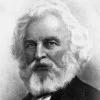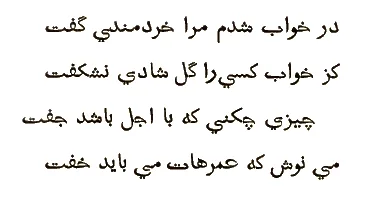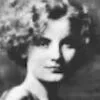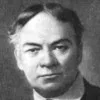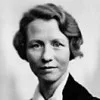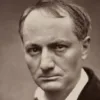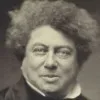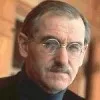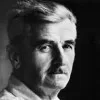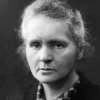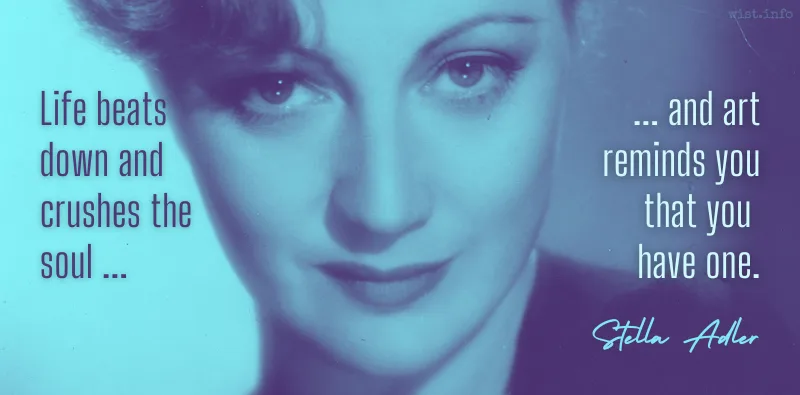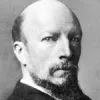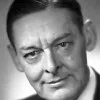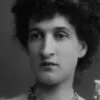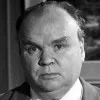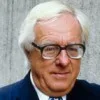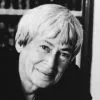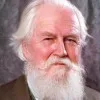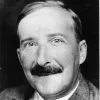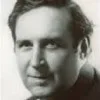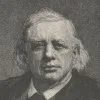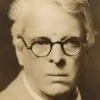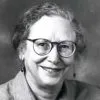He that does a Memorable Action, and those that Report it, are all but short-liv’d Things.
[Πᾶν ἐφήμερον, καὶ τὸ μνημονεῦον καὶ τὸ μνημονευόμενον.]
Marcus Aurelius (AD 121-180) Roman emperor (161-180), Stoic philosopher
Meditations [To Himself; Τὰ εἰς ἑαυτόν], Book 4, ch. 35 (4.35) (AD 161-180) [tr. Collier (1701)]
(Source)
(Source (Greek)). Alternate translations:All things are transitory, and, as it were, but for a day; both those who remember; and the things, and persons remembered.
[tr. Hutcheson/Moor (1742)]Everything is only for a day, both that which remembers and that which is remembered.
[tr. Long (1862)]He that does a memorable action, and those that report it, are all but short-lived things.
[tr. Collier/Zimmern (1887)]Everything is but for a day, remembrancer alike and the remembered.
[tr. Rendall (1898)]All things are for a day, both what remembers and what is remembered.
[tr. Hutcheson/Chrystal (1902)]Ephemeral all of them, the rememberer as well as the remembered!
[tr. Haines (Loeb) (1916)]All is ephemeral, both what remembers and what is remembered.
[tr. Farquharson (1944)]All of us are creatures of a day; the rememberer and the remembered alike.
[tr. Staniforth (1964)]All is ephemeral, both that which remembers and that which is remembered.
[tr. Hard (1997 ed.)]Everything transitory -- the knower and the known.
[tr. Hays (2003)]All is ephemeral, both memory and the object of memory.
[tr. Hammond (2006)]They are all short-lived, both those who remember and the remembered.
[tr. Needleman/Piazza (2008)]All is ephemeral, both that which remembers and that which is remembered.
[tr. Hard (2011 ed.)]Everything is transitory, both that which remembers and that which is remembered.
[tr. Gill (2013)]
Quotations about:
life
Note not all quotations have been tagged, so Search may find additional quotes on this topic.
Toiling — rejoicing — sorrowing,
Onward through life he goes;
Each morning sees some task begin,
Each evening sees it close;
Something attempted, something done,
Has earned a night’s repose.Henry Wadsworth Longfellow (1807-1882) American poet
“The Village Blacksmith,” st. 7 (1840)
(Source)
Swift falsifies his picture of the world by refusing to see anything in human life except dirt, folly and wickedness, but the part which he abstracts from the whole does exist, and it is something which we all know about while shrinking from mentioning it. Part of our minds — in any normal person it is the dominant part — believes that man is a noble animal and life is worth living: but there is also a sort of inner self which at least intermittently stands aghast at the horror of existence.
George Orwell (1903-1950) English writer [pseud. of Eric Arthur Blair]
Essay (1946-09), “Politics vs. Literature: An Examination of Gulliver’s Travels,” Polemic, No. 5
(Source)
Most of us spend so much time thinking about where we have been or where we are supposed to be going that we have a hard time recognizing where we actually are.
Barbara Brown Taylor (b. 1951) American minister, academic, author
An Altar in the World, ch. 4 (2009)
(Source)
We two make banquets of the plainest fare;
In every cup we find the thrill of pleasure;
We hide with wreaths the furrowed brow of care
And win to smiles the set lips of despair.
For us life always moves with lilting measure;
We two, we two, we make our world, our pleasure.Ella Wheeler Wilcox (1850-1919) American author, poet, temperance advocate, spiritualist
Poem (1900-05), “We Two,” st. 2, The Century Magazine, Vol. 60, No. 1
(Source)
Collected in Poems of Power (1902)
I enjoy life; I might almost say that with every year that passes I enjoy it more. This is due partly to having discovered what were the things that I most desired, and having gradually acquired many of these things. Partly it is due to having successfully dismissed certain objects of desire — such as the acquisition of indubitable knowledge about something or other — as essentially unattainable. But very largely it is due to a diminishing preoccupation with myself. Like others who had a Puritan education, I had the habit of meditating on my sins, follies, and shortcomings. I seemed to myself — no doubt justly — a miserable specimen. Gradually I learned to be indifferent to myself and my deficiencies; I came to centre my attention increasingly upon external objects: the state of the world, various branches of knowledge, individuals for whom I felt affection.
Bertrand Russell (1872-1970) English mathematician and philosopher
Conquest of Happiness, Part 1, ch. 1 “What Makes People Unhappy?” (1930)
(Source)
I had set foot in that part of life beyond which one cannot go with any hope of returning.
[Io tenni li piedi in quella parte de la vita di là da la quale non si puote ire più per intendimento di ritornare.]
Dante Alighieri (1265-1321) Italian poet
La Vita Nuova [Vita Nova; New Life], ch. 14 (c. 1294, pub. 1576) [tr. Reynolds (1969)]
(Source)
Said to his friend after seeing Beatrice at a wedding feast (perhaps her own to Simone de’ Bardi), at which point his passion for her has have been set.
(Source (Italian)). Alternate translations:Of a surety I have now set my feet on that point of life, beyond the which he must not pass who would return.
[tr. Rossetti (c. 1847; 1899 ed.)]I have set my foot in that part of life, to pass beyond which with purpose to return is impossible.
[tr. Martin (1862)]I have held my feet on that part of life beyond which no man can go with intent to return.
[tr. Norton (1867)]I have placed my feet on those boundaries of life beyond which no one can go further and hope to return.
[tr. Musa (1971)]I have just set foot on that boundary of life beyond which no one can go, hoping to return.
[tr. Hollander (1997)]I have set foot in that region of life where it is not possible to go with any more intention of returning.
[tr. Kline (2002)]My feet were at the edge of life beyond which one cannot pass with an expectation of returning.
[tr. Appelbaum (2006)]I have set my feet in that place in life beyond which one cannot go with the intention of returning.
[tr. Frisardi (2012), ch. 7]
I dreamt a sage said, “Wherefore life consume
In sleep? Can sleep make pleasure’s roses bloom?
For gather not with death’s twin-brother sleep,
Thou wilt have sleep enough within thy tomb!”
Omar Khayyám (1048-1123) Persian poet, mathematician, philosopher, astronomer [عمر خیام]
Rubáiyát [رباعیات], Bod. # 27 [tr. Whinfield (1883), # 51]
(Source)
Alternate translations:One night, I beheld in a dream a sage, who said to me, "In sleep, O mhy friend, the rose of joy has never blossomed for any man. Why do you do a deed so like to death? Arise, and drink wine, for you will sleep sound enough beneath the earth.
[tr. McCarthy (1879), # 47] (1888)]Last night I dreamed I met a sage who said:
"Doth e'er in sleep the rosebud lift its head?
Why sleep, for sleep is but akin to death,
And thou shalt sleep enough when thou art dead?"
[tr. Garner (1887), 91]Life is so short, yet sleeps thy lovely head;
Why make so soon a death-bed of thy bed?
O love, awake! thy beauty wastes away --
Thou shalt sleep on and on when thou art dead.
[tr. Le Gallienne (1897), # 33]In a dream of the night quoth a sage me unto:
"Rose of gladness for mortal from sleep never blew;
A thing, then, to death that akin is why do?
Up, for under the earth thou shalt slumber thy due!"
[tr. Payne (1898), # 196]I fell asleep, and wisdom said to me: --
"Never from sleep has the rose of happiness blossomed for anyone;
why do a thing that is the mate of death?
Drink wine, for thou must sleep for ages."
[tr. Heron-Allen (1898), # 27]'Twas while I slept, that thus a wise man spoke: --
"Sleep never caused joy's rose in man to bloom,
Why court you thus the fellow of death's yoke?
Drink now, you'll sleep enough in earth's dark womb."
[tr. Cadell (1899), # 16]I lay upon my couch in slumber deep,
And Wisdom cried aloud, "Oh, wherefore sleep?
For sleep is kin to death; drink while you may;
Eternal slumber hastens o'er the steep!"
[tr. Roe (1906), # 20]I dreamt that Wisdom came to me and said,
"In sleep for none joy's roses petals spread,
In life why dost thou mimic death? Arise!
For sleep thou must when 'neath earth is thy bed."
[tr. Thompson (1906), # 93]Falling asleep, I heard my Fate confess
That Sleep ne'er bore the Rose of Happiness.
"Sleep is the Mate of Death," she cried. "Awake!
Drink, ere Her lips bestow the last caress!"
[tr. Talbot (1908), # 27]I dropped asleep. A wise man said to me: "From sleep
the rose of pleasure did never bloom for anyone.
Why do you meddle with that which is of a piece
with death ? Drink wine for we must sleep during many a lifetime."
[tr. Christensen (1927), # 59]I fell asleep, and a wise man said to me:
"Sleep has brought to no one the rose of bliss.
Why do a thing which is the twin of death?
Drink wine, for many a life-time you must slumber".
[tr. Rosen (1928), # 43]In sleep I was -- A sage then told me so:
"In darkness fruit of bliss will never grow,
Arise and fight with Death, avoid his blow;
Ere long you sleep within The Pit below."
[tr. Tirtha (1941), # 7.1]I was asleep, a wise man said to me
"The rose of joy does not bloom for slumberers;
Why are you asleep? Sleep is the image of death,
Drink wine, below the ground you must sleep of necessity.
[tr. Avery/Heath-Stubbs (1979), # 159]
What we’re here for
is death
Somebody accidentally
wound us up
(“I told you
to leave that alone”)
and we must
wait
to run down.George Alec Effinger (1947-2002) American author [a.k.a. O. Neimand, Susan Doenim]
Poem (1972), “Things Go Better, Orbit 11 [ed. Damon Knight]
(Source)
Collected in Effinger, Mixed Feelings (1974).
The two most precious things on this side the grave are our reputation and our life. But it is to be lamented that the most contemptible whisper may deprive us of the one, and the weakest weapon of the other. A wise man, therefore, will be more anxious to deserve a fair name than to possess it, and this will teach him so to live as not to be afraid to die.
Charles Caleb "C. C." Colton (1780-1832) English cleric, writer, aphorist
Lacon: Or, Many Things in Few Words, Vol. 1, § 555 (1820)
(Source)
Busy work brings after ease;
Ease brings sport and sport brings rest;
For young and old, of all degrees,
The mingled lot is best.Joanna Baillie (1762-1851) Scottish poet and dramatist
Poem (1790), “Rhymes,” Fugitive Verses
(Source)
Seven long years of war — fighting for what? For the principle that all men are created equal — a truth that nobody ever disputed except a scoundrel; nobody, nobody in the entire history of this world. No man ever denied that truth who was not a rascal, and at heart a thief; never, never, and never will. What else were they fighting for? Simply that in America every man should have a right to life, liberty, and the pursuit of happiness. Nobody ever denied that except a villain; never, never. It has been denied by kings — they were thieves. It has been denied by statesmen — they were liars. It has been denied by priests, by clergymen, by cardinals, by bishops, and by popes — they were hypocrites.
Robert Green Ingersoll (1833-1899) American lawyer, agnostic, orator
Speech (1876-07-04), “Centennial Oration [The Declaration of Independence],” Peoria, Illinois
(Source)
That is not dead which can eternal lie,
And with strange eons, even death may die.H. P. Lovecraft (1890-1937) American fabulist [Howard Phillips Lovecraft]
“The Nameless City,” The Wolverine magazine (1921-11)
(Source)
In the story, the "unexplainable couplet" of Abdul Alhazred, "the mad poet," after having dreamed of the titular city. It is babbled later by the narrator after his sojourn into the city and confrontation with the horror there.
Years steal
Fire from the mind as vigor from the limb;
And life’s enchanted cup but sparkles near the brim.George Gordon, Lord Byron (1788-1824) English poet
Childe Harold’s Pilgrimage, Canto 3, st. 8 (1816)
(Source)
In that part of the book of my memory before which little can be read, there is a heading, which says: “Incipit vita nova: Here begins the new life.”
[In quella parte del libro de la mia memoria dinanzi a la quale poco si potrebbe leggere, si trova una rubrica la quale dice: Incipit vita nova.]
Dante Alighieri (1265-1321) Italian poet
La Vita Nuova [Vita Nova; The New Life], ch. 1 (c. 1294, pub. 1576) [tr. Kline (2002)]
(Source)
Opening sentence of the work.
There is some scholarly disagreement as to whether the title means "the new life" or "the early life." Reynolds translates the Latin phrase here as "Here begins the period of my boyhood," as explained here. Most scholars prefer the "new life" interpretation, with some caveats.
(Source (Italian)). Alternate translations:In that part of the book of my memory before the which is little that can be read, there is a rubric, saying, Incipit Vita Nova.
[tr. Rossetti (c. 1847; 1899 ed.)]In that part of the book of my memory, anterior whereto is little that can be read, stands a rubric, which says : -- "Incipit Vita Nova. Here beginneth the New Life."
[tr. Martin (1862)]In that part of the book of my memory before which little can be read is found a rubric which says: Incipit Vita Nova [The New Life begins].
[tr. Norton (1867), "Proem"]In the book of my memory, after the first pages, which are almost blank, there is a section headed Incipit vita nova.
[tr. Reynolds (1969)]In that part of my book of memory before which there would be little to read is found a chapter heading which says: “Here begins the new life.”
[tr. Musa (1971)]In my Book of Memory, in the early part where there is little to be read, there comes a chapter with the rubric: Incipit vita nova.
[tr. Hollander (1997)]In that part of the book of my memory before which little may be read is found a rubric which says: "The new life begins."
[tr. Appelbaum (2006)]In the book of my memory -- the part of it before which not much is legible -- there is the heading Incipit vita nova.
[tr. Frisardi (2012)]
There is a poetic version of this opening sentence which I have not been able to source, but has become extremely popular in wedding vows and other pronouncements of love, and is usually presented as Dante's own work:In that book which is
My memory ...
On the first page
That is the chapter when
I first met you
Appear the words ...
"Here begins a new life."
Dante's first meeting with Beatrice (when he was nine years old) is described in the following paragraph, but is not part of this opening sentence. This chapter is also part of the prose portion of the work, not a poem.
Experiense iz a good teacher, but she iz a dredphull slo one, before we git haff thru her lessons, the bell rings, and we are summoned to judgement.
[Experience is a good teacher, but she is a dreadful slow one; before we get half through her lessons, the bell rings, and we are summoned to judgement.]
Josh Billings (1818-1885) American humorist, aphorist [pseud. of Henry Wheeler Shaw]
Josh Billings’ Trump Kards, ch. 6 “Pets” (1874)
(Source)
Experience has no text books nor proxies. She demands that her pupils answer to her roll-call personally.
Minna Antrim (1861-1950) American epigrammatist, writer
Naked Truth and Veiled Allusions (1902)
(Source)
MORE: I do none harm, I say none harm, I think none harm. And if this be not enough to keep a man alive, in good faith I long not to live.
Robert Bolt (1924-1995) English dramatist
A Man for All Seasons, play, Act 2 (1960)
(Source)
After he has been condemned, speaking his mind about the Supremacy Act, but denying any malice.The 1966 film adaptation uses the same language.
To approach a city, or even a city neighborhood, as if it were a larger architectural problem, capable of being given order by converting it into a disciplined work of art, is to make the mistake of attempting to substitute art for life.
The results of such profound confusion between art and life are neither life nor art. They are taxidermy. In its place, taxidermy can be a useful and decent craft. However, it goes too far when the specimens put on display are exhibitions of dead, stuffed cities.Jane Jacobs (1916-2006) American-Canadian journalist, author, urban theorist, activist
The Death and Life of Great American Cities, Part 4, ch. 19 (1961)
(Source)
Life is a madrigal or a dirge, according to the singer’s temperament.
Minna Antrim (1861-1950) American epigrammatist, writer
Naked Truth and Veiled Allusions (1902)
(Source)
Not in some cloister or cave,
Not in some kingdom above,
Here, on this side of the grave,
Here, should we labor and love.Ella Wheeler Wilcox (1850-1919) American author, poet, temperance advocate, spiritualist
Poem (1896), “Here and Now.” st. 4, Custer and Other Poems
(Source)
Closing lines.
No Church-yard is so handsom, that a man would desire straight to bee buried there.
George Herbert (1593-1633) Welsh priest, orator, poet.
Jacula Prudentum, or Outlandish Proverbs, Sentences, &c. (compiler), # 969 (1640 ed.)
(Source)
I told her that what made being alive almost worthwhile for me was all the saints I met almost anywhere, people who were behaving decently in an indecent society.
Kurt Vonnegut, Jr. (1922-2007) American novelist, journalist
Letter (1992-10-16) to Robert Maslansky
(Source)
Phrases used in a number of places by Vonnegut, often as his reply when a woman wrote him to ask if it were right to bring a child into a world as bad as this one; he then encouraged his readers or listeners to become a saint for that child. He also used the phrase to describe the underlying theme of his writing.
Other variants:I replied that what made being alive almost worthwhile for me was the saints I met, people behaving unselfishly and capably. They turned up in the most unexpected places.
[Timequake, ch. 62 (1997)]I replied that what made living almost worthwhile for me were the saints I met. They could be anywhere. They were people who behaved decently in an indecent society.
[Kevin Alexander Bacon, ed., At Millennium's End: New Essays on the Work of Kurt Vonnegut, Foreword (1998-11-11) (2001)]What makes life worth living are the saints I meet -- they can be long-time friends or someone I meet on a street. They find a way to behave decently in an indecent society.
["Vonnegut Unbound," Interview by Christopher R. Blazejewski, The Harvard Crimson (2000-05-12)]I replied that what made being alive almost worthwhile for me, besides music, was all the saints I met, who could be anywhere. By saints I meant people who behaved decently in a strikingly indecent society.
[Lecture (2003-09-22), University of Wisconsin, Madison; reprinted in "Knowing What's Nice," In These Times (2003-11-06)]What makes life worth living are the saints. You meet saints everywhere. They can be anywhere. They are people behaving decently in an indecent society.
[Frequently quoted version]
Throw the lumber over, man! Let your boat of life be light, packed with only what you need — a homely home and simple pleasures, one or two friends, worth the name, someone to love and someone to love you, a cat, a dog, and a pipe or two, enough to eat and enough to wear, and a little more than enough to drink; for thirst is a dangerous thing.
Jerome K. Jerome (1859-1927) English writer, humorist [Jerome Klapka Jerome]
Three Men in a Boat (To Say Nothing of the Dog), ch. 3 (1889)
(Source)
Blame not this ball, impelled by bat’s hard blows,
That now to right and now to left it goes,
That One who wields the bat and smites the strokes
He knows what drives thee, yea He knows, He knows.Omar Khayyám (1048-1123) Persian poet, mathematician, philosopher, astronomer [عمر خیام]
Rubáiyát [رباعیات] [tr. Whinfield (1882), # 204]
(Source)
This metaphor of life as a polo game appears in some translations of the Rubaiyat (particularly FitzGerald), but not in the Bodleian manuscript.
Alternate translations:The Ball no Question makes of Ayes and Noes,
But Right or Left as strikes the Player goes;
And He that toss'd Thee down into the Field,
He knows about it all -- He knows -- HE knows!
[tr. FitzGerald, 1st ed. (1859), # 50]The Ball no Question makes of Ayes and Noes,
But Right or Left as strikes the Player goes;
And He that toss'd you down into the Field,
He knows about it all -- HE knows -- HE knows!
[tr. FitzGerald, 2nd ed. (1868), # 75; 3rd ed. (1872), 4th ed. (1879), 5th ed. (1889 ed.), # 70]Man, like a ball, hither and thither goes,
As fate's resistless bat directs the blows;
But He, who gives thee up to this rude sport,
He knows what drives thee, yea, He knows, He knows!
[tr. Whinfield (1883), # 401]Oh thou who art driven like a ball, by the bat of
Fate, go to the right or left -- drink wine and say
nothing, for that One who flung thee into the run
and search (mêlée) he knows, he knows, he knows, he -- .
[tr. Garner (1895 ms)]O thou who art gone to the club of fate like a ball!
Go to the left and to the right; but say nothing;
For He that threw thee down amidst the galloping,
He knows, and He knows, and He knows, and He --
[tr. Rodwell (1931) # 50/70]Poor ball, struck by Fate's heavy polo-mallet,
Running whichever way it drives you, numbed
Of sense, though He who set you on your course,
He knows, He knows, He knows.
[tr. Graves & Ali-Shah (1967), # 74]Whirling like a ball before the mallet of Fate, go running to right and left, and say nothing; for he that hurled thee into the chase, He knows, and He knows, and He knows!
[tr. Bowen (1976), # 43]Do not despair because to left and right
Fate drives you onward with his ballet-blows,
For He who flung you out into the fray,
He knows the game's technique -- He knows, He knows.
[tr. Bowen (1976), # 43]In the cosmic game of polo you are the ball
The mallet’s left and right becomes your call
He who causes your movements, your rise and fall
He is the one, the only one, who knows it all.
[tr. Shahriari (1998), literal]In the cosmic there is a flow
To which you must submit and bow
And though you act in this show
And seem to move to and fro
The plot you’ll never get to know
The only way you get to grow
Align yourself with this flow.
[tr. Shahriari (1998), figurative]
A fresh hope is astir. From many quarters comes the call to a new kind of education with its initial assumption affirming that education is life — not a mere preparation for an unknown kind of future living. Consequently all static concepts of education which relegate the learning process to the period of youth are abandoned. The whole of life is learning, therefore education can have no endings,
Eduard C. Lindeman (1885-1953) American educator
The Meaning of Adult Education, ch. 1 (1926)
(Source)
The real sin against life is to abuse and destroy beauty, even one’s own — even more, one’s own, for that has been put in our care and we are responsible for its well-being.
Katherine Anne Porter (1890-1980) American journalist, essayist, author, political activist [b. Callie Russell Porter]
Ship of Fools, Part 3 [Freytag] (1962)
(Source)
We vaguely know the rules, and the system of scoring, but for God’s sake why don’t they tell us how long the game is?
Mignon McLaughlin (1913-1983) American journalist and author
The Second Neurotic’s Notebook, ch. 5 (1966)
(Source)
The Fates, and Furies, too, glide with linked hands over life, as well as the Graces and Sirens.
[Die Parzen und Furien ziehen auch mit verbundnen Händen um das Leben, wie die Grazien und die Sirenen.]Jean Paul Richter (1763-1825) German writer, art historian, philosopher, littérateur [Johann Paul Friedrich Richter; pseud. Jean Paul]
Titan, Jubilee 35, cycle 140 [Siebenkäs] (1803) [tr. Brooks (1863)]
(Source)
(Source (German)). Alternate translation:The Fates and the Furies, as well as the Graces and Sirens, glide with linked hands over life.
[comp. Hoyt (1883)]
The purpose of protecting the life of our Nation and preserving the liberty of our citizens is to pursue the happiness of our people. Our success in that pursuit is the test of our success as a Nation.
LIFE
We laugh and laugh,
Then cry and cry —
Then feebler laugh,
Then die.Mark Twain (1835-1910) American writer [pseud. of Samuel Clemens]
Note (1898-07-04), Mark Twain’s Notebook, ch. 21 “In Vienna” (1935) [ed. Albert Bigelow Paine]
(Source)
While summering in Kaltenleutgeben, Austria.
It is so hard for us little human beings to accept this deal that we get. It’s really crazy, isn’t it? We get to live, then we have to die. What we put into every moment is all we have.
Life altogether is but a crumbling ruin when we turn to look behind: a shattered column here, where a massive portal stood; the broken shaft of a window to mark my lady’s bower; and a moldering heap of blackened stones where the glowing flames once leaped, and over all the tinted lichen and the ivy clinging green.
Jerome K. Jerome (1859-1927) English writer, humorist [Jerome Klapka Jerome]
Idle Thoughts of an Idle Fellow, “On Memory” (1886)
(Source)
First published in Home Chimes (1885-09-26).
GARCIN: I died too soon. I wasn’t allowed time to — to do my deeds.
INEZ: One always dies too soon — or too late. And yet one’s whole life is complete at that moment, with a line drawn neatly under it, ready for the summing up. You are — your life, and nothing else.
“How wonderful to be alive,” he thought. “But why does it always hurt?”
Boris Pasternak (1890-1960) Russian poet, novelist, and literary translator
Doctor Zhivago [До́ктор Жива́го], Part 1, ch. 1 “The Five O’Clock Express,” sec. 4 [Nika] (1955) [tr. Hayward & Harari (1958), US ed.]
(Source)
Alternate translations:"How wonderful to be alive," he thought. "But why does it always have to be so painful?"
[tr. Hayward & Harari (1958), UK ed.]"How good it is in this world!" he thought. "But why does it always come out so painful?"
[tr. Pevear & Volokhonsky (2010)]
Life was given me as a favour; I may consequently give it back, when it is no longer so.
[La vie m’a été donnée comme une faveur ; je puis donc la rendre lorsqu’elle ne l’est plus.]
Charles-Lewis de Secondat, Baron de Montesquieu (1689-1755) French political philosopher
Persian Letters [Lettres Persanes], Letter 76, Usbek to Ibben (1721) [tr. Ozell (1760 ed.), No. 77]
(Source)
(Source (French)). Alternate translations:Life was given to me as a favour; I may then return it, when it is no more so.
[tr. Floyd (1762)]Life was given me as a blessing; when it ceases to be so I can give it up.
[tr. Davidson (1891)]Life was bestowed upon me as a favor; I may then give it back when it is a favor no longer.
[tr. Betts (1897)]Life has been given to me as a favor, which I can return when it is that no longer.
[tr. Healy (1964)]Life was given to me as a kind of favor; when it ceases to be that, I can put an end to it.
[tr. MacKenzie (2014)]
Life is a flame that is always burning itself out; but it catches fire again every time a child is born.
George Bernard Shaw (1856-1950) British playwright and critic
“The Adventures of the Black Girl in Her Search for God,” Short Stories, Scraps, and Shavings (1932)
(Source)
EDIBLE, adj. Good to eat, and wholesome to digest, as a worm to a toad, a toad to a snake, a snake to a pig, a pig to a man, and a man to a worm.
Ambrose Bierce (1842-1914?) American writer and journalist
“Edible,” The Cynic’s Word Book (1906)
(Source)
Included in The Devil's Dictionary (1911). Originally published in the "Devil's Dictionary" column in the San Francisco Wasp (1882-12-23).
It has been one of the defects of theologians at all times to over-estimate the importance of our planet. No doubt this was natural enough in the days before Copernicus when it was thought that the heavens revolve about the earth. But since Copernicus and still more since the modern exploration of distant regions, this pre-occupation with the earth has become rather parochial. If the universe had a Creator, it is hardly reasonable to suppose that He was specially interested in our little corner. And, if He was not, His values must have been different from ours, since in the immense majority of regions life is impossible.
Bertrand Russell (1872-1970) English mathematician and philosopher
“Is There a God?” (1952)
(Source)
Essay commissioned by Illustrated magazine in 1952, but never published there. First publication in Russell, Last Philosophical Testament, 1943-68 (1997) [ed. Slater/Köllner].
For in and out, above, about, below,
‘Tis nothing but a Magic Shadow-show,
Play’d in a Box whose Candle is the Sun,
Round which we Phantom Figures come and go.Omar Khayyám (1048-1123) Persian poet, mathematician, philosopher, astronomer [عمر خیام]
Rubáiyát [رباعیات], Bod. # 108 [tr. FitzGerald, 1st ed. (1859), # 46]
(Source)
The fanúsi khiyál, was an Indian magic lantern still used in Fitzgerald's day, "the cylindrical Interior being painted with various Figures, and so lightly poised and ventilated as to revolve round the candle lighted within."
Alternate translations:Yon rolling heavens, at which we gaze bewildered,
Are but the image of a magic lanthorn;
The sun is the candle, the world the shade,
And we the images which flit therein.
[tr. Cowell (1858), # 28]We are no other than a moving row
Of visionary Shapes that come and go
Round with this Sun-illumin'd Lantern held
In Midnight by the Master of the Show.
[tr. FitzGerald, 2nd Ed (1868), # 73]We are no other than a moving row
Of Magic Shadow-shapes that come and go
Round with the Sun-illumin'd Lantern held
In Midnight by the Master of the Show.
[tr. FitzGerald, 3rd ed. (1872), # 68; and subsequent eds.]This vault of heaven under which we move in a vain shadow, may be likened unto a lantern; the sun is the focus, and we, like the figures, live there in amazement.
[tr. McCarthy (1879), # 230]These circling heavens, which make us so dismayed,
I liken to a lamp's revolving shade,
The sun the candlestick, the earth the shade,
And men the trembling forms thereon portrayed.
[tr. Whinfield (1882), # 165]This wheel of heaven, which makes us all afraid,
I liken to a lamp's revolving shade,
The sun the candlestick, the earth the shade,
And men the trembling forms thereon portrayed.
[tr. Whinfield (1883), # 310]A Turning Magic Lantern show this World,
Around the Sun as Candle swiftly whirled,
While mortals are but Phantom Figures traced
Upon the Shade, forever Onward hurled.
[tr. Garner (1887), 9.4]This vault of Heaven at which we gaze astounded,
May by a painted lantern be expounded:
The light's the Sun, the lantern is the World,
And We the figures whirling dazed around it!
[tr. M. K. (1888)]This vault of heaven, beneath which we stand bewildered,
we know to be a sort of magic. lantern:
know thou that the sun is the lamp flame and the universe is the lamp,
we are like figures that revolve in it.
[tr. Heron-Allen (1898), # 108]This heavenly dome, where we distracted dwell,
Is likest to a magic lantern made;
The sun the candle and the world the screen,
And we the images that flit and fade.
[tr. Cadell (1899), # 125]Passionate particles of dust and sun,
Run your brief race, nor ask why it is run --
We are but shadow-pictures, voices, dreams;
Perchance they make and break us -- just for fun.
[tr. Le Gallienne (1902)]This wheel of Heaven which we amazed discern.
Is like a Chinese lantern, as we learn;
The Sun the lamp, the World the lantern is.
And we like figures are that on it turn.
[tr. Thompson (1906), # 353]This vault of Heaven, 'neath which like fools we sit,
Is but a magic-lantern, dimly lit:
The sun the flame, the Universe the lamp,
We are the figures that revolve in it.
[tr. Talbot (1908), # 108]This revolving sphere in which we stand bewildered
Is like unto a Chinese lantern,
The sun, its lamp and its shade the world,
We, the figures moving within it.
[tr. Rosen (1928), # 207]Methinks this Wheel at which we gape and stare,
Is Chinese lantern -- like we buy at fair;
The lamp is Sun, and paper-shade the world,
And we the pictures whirling unaware.
[tr. Tirtha (1941), # 2.5]This vault underneath which we lie bemused
Is, so to speak, God's magic shadow show
With sun for lamp, the world as a wide screen
For countless lie-rehearsing silhouettes.
[tr. Graves & Ali-Shah (1967)]This Universal wheel, this merry-go-round
In our imagination we have found
The sun a flame, in the Cosmic lantern bound
We are mere ghosts, revolving, the flame surround.
[tr. Shahriari (1998), literal]In our imagination, the Cosmic Wheel
Will cause us pain and cause us heal,
We find our source give life and steal,
We are phantoms that think and feel.
[tr. Shahriari (1998), figurative]
Life in itself
Is nothing,
An empty cup, a flight of uncarpeted stairs.
The task of war is to destroy life; the task of peace is to create it; to organize labor so that it shall not incapacitate men for leisure; to establish justice as a foundation for personality; to unfold in men the capacity for noble joy and profound sorrow; to liberate them for the passion of love, the perception of beauty, the contemplation of truth. Of all these things war is the enemy.
G. Lowes Dickinson (1862-1932) British political scientist and philosopher [Goldsworthy "Goldie" Lowes Dickinson]
“The War and the Way Out: A Further Consideration,” sec. 3, Atlantic Monthly (1915-04)
(Source)
But not only creativeness and enjoyment are meaningful. If there is a meaning in life at all, then there must be a meaning in suffering. Suffering is an ineradicable part of life, even as fate and death. Without suffering and death human life cannot be complete.
Viktor Frankl (1905-1997) German-American psychologist, writer
Man’s Search for Meaning [Trotzdem Ja zum Leben Sagen], Part 1 (1946) [tr. Lasch (1959)]
(Source)
About one-half the discumfert ov this life iz the result ov gitting tired ov ourselfs.
[About one-half the discomfort of this life is the result of getting tired of ourselves.]
Josh Billings (1818-1885) American humorist, aphorist [pseud. of Henry Wheeler Shaw]
Everybody’s Friend, Or; Josh Billing’s Encyclopedia and Proverbial Philosophy of Wit and Humor, ch. 132 “Affurisms: Chips” (1874)
(Source)
How dull it is to pause, to make an end,
To rust unburnish’d, not to shine in use!
As tho’ to breathe were life. Life piled on life
Were all too little, and of one to me
Little remains: but every hour is saved
From that eternal silence, something more,
A bringer of new things; and vile it were
For some three suns to store and hoard myself,
And this gray spirit yearning in desire
To follow knowledge, like a sinking star,
Beyond the utmost bound of human thought.
Life is truly known only to those who suffer, lose, endure adversity, and stumble from defeat to defeat.
Ryszard Kapuściński (1932-2007) Polish journalist, photographer, poet, author
“A Warsaw Diary,” Granta Magazine, No. 15 (1985 Spring)
(Source)
Life is like arriving late for a movie, having to figure out what was going on without bothering everybody with a lot of questions, and then being unexpectedly called away before you find out how it ends.
Joseph Campbell (1904-1987) American writer, professor of literature
(Attributed)
To live in this world
you must be able
to do three things:
to love what is mortal;
to hold itagainst your bones knowing
your own life depends on it;
and, when the time comes to let it go,
to let it go.Mary Oliver (1935-2019) American poet
“In Blackwater Woods,” American Primitive (1983)
(Source)
Originally published in Yankee Magazine.
Life is much more manageable when thought of as a scavenger hunt as opposed to a surprise party.
Jimmy Buffett (1946-2023) American musician and singer-songwriter [James William Buffett]
A Pirate Looks at Fifty, Sec. 11 “The Islands” (1998)
(Source)
Listen, are you breathing just a little and calling it a life?
Mary Oliver (1935-2019) American poet
“Have You Ever Tried to Enter the Long Black Branches?” West Wind (1997)
(Source)
The world is a library of strange and wonderful books, and sometimes we just need to go prowling through the stacks.
Michael Dirda (b. 1948) American book critic
Book by Book: Notes on Reading and Life, ch. 8 (2005)
(Source)
Life is like a ten-speed bicycle. Most of us have gears that we never use.
Charles Schulz (1922-2000) American cartoonist
Peanuts [Linus] (1981-05-29)
(Source)
The phrase was also used as the title in a Peanuts collection of Linus' wisdom, Life Is Like A Ten-Speed Bicycle (1997), which included this strip.
In order to be well received, an actor need not be on stage all the way through the play, as long as he performs satisfactorily in the scenes in which his character appears. In the same way, a wise man need not feel that he must loiter to the very end of the very last act. To demonstrate virtue and excellent character, a short life is long enough.
[Neque enim histrioni, ut placeat, peragenda fabula est, modo in quocunque fuerit actu probetur; neque sapientibus usque ad “Plaudite” veniendum est. Breve enim tempus aetatis satis longum est ad bene honesteque vivendum.]Marcus Tullius Cicero (106-43 BC) Roman orator, statesman, philosopher
De Senectute [Cato Maior; On Old Age], ch. 19 / sec. 70 (19.70) (44 BC) [tr. Cobbold (2012)]
(Source)
Many older translators refer to the plaudite, which was was the last word of many Latin plays, particularly those of Terence and Plautus. It was basically a formal cue for the audience to applaud. Waiting for the plaudite is the same as waiting for the end of the play, the fall of the curtain.
(Source (Latin)). Alternate translations:I wolde that ye knowe that as the poete makith not onely by versys of a fable in his comedye callid an enterlude to the intente bycause that it please to hym that pleyeth it in the game. But the poete makith onely his comedye and enterlude to the ende bycause that in every pagent he be preysed and commended of every man aftir his playe. And the wise man also ought not to desire to lyve tylle that he saye "That is to witt I will no lenger of my life." For a short and a litle tyme of age is long for to lyve wele and honestly.
[tr. Worcester/Worcester/Scrope (1481)]For he that is a stage-player needeth not of necessity to be an actor in the interlude or comedy until the last end thereof (to delight the beholders), but in what act of the same soever he playeth or chanceth to be, he must so expressly handle and play his part, that he may win praise and commendation; neither should a wise man live till the plaudite be stricken up. For a short space and time of life is long enough to live well and honestly, and in whatsoever age we be in, it is sufficient to have lived therein godly and virtuously.
[tr. Newton (1569)]For a good actor is not applauded in the midst of a Scene, so a wise mans praise comes not till the end. The time of our age is short indeed; but long enough to live well and honestly.
[tr. Austin (1648), ch. 21]When a good Actor doth his part present,
In ev'ry Act he our attention draws,
That at the last he may find just applause,
So (though but short) yet we must learn the art
Of virtue, on this Stage to act our part;
True wisdome must our actions so direct,
Not only the last Plaudite to expect.
[tr. Denham (1669)]A short Space of time is long enough, if constantly employed in the Pursuit of Honour and Virtue.
[tr. Hemming (1716)]And as the Player may be applauded in every Scene, tho' to give true Satisfaction he must finish his Play; so with the wise Man, he lives approv'd by all till his last Plaudit. For the time of Man's life is short, yet it is long enough to live well.
[tr. J. D. (1744)]No Man expects of any one Actor on the Theatre, that he should perform all the Parts of the Piece himself: One Role only is committed to him, and whatever that be, if he acts it well, he is applauded. In the same Manner, it is not the Part of a wise Man, to desire to be busy in these Scenes to the last Plaudit. A short Term may be long enough to live it well and honourably.
[tr. Logan (1744)]It is in life as on the stage, where it is not necessary in order to be approved, that the actor's part should continue to the conclusion of the drama; it is sufficient, in whatever scene he shall make his final exit, that he supports the character assigned him with deserved applause. The truth is, a small portion of time is abundantly adequate to the purposes of honour and virtue.
[tr. Melmoth (1773)]For neither must a play be gone all through by a player, that he may please; it is only needful that he be approved in whatsoever act he shall have been; nor should a wise man live quite to Plaudite. For a short space of time is long enough to live virtuously and honourably.
[Cornish Bros. ed. (1847)]For neither need the drama be performed entire by the actor, in order to give satisfaction, provided he be approved in whatever act he may be: nor need the wise man live till the plaudite. For the short period of life is long enough for living well and honourably.
[tr. Edmonds (1874)]In order to give pleasure to the audience, the actor need not finish the play; he may win approval in whatever act he takes part in; nor need the wise man remain on the stage till the closing plaudit. A brief time is long enough to live well and honorably.
[tr. Peabody (1884)]An actor, in order to earn approval, is not bound to perform the play from beginning to end; let him only satisfy the audience in whatever act he appears. Nor need a wise man go on to the concluding "plaudite." For a short term of life is long enough for living well and honourably.
[tr. Shuckburgh (1895)]Our span of life is brief, but it is long enough for us to live well and honestly.
[ed. Harbottle (1906)]Why ev'n the actor to secure applause
Need not play to the end: if but he do
His best, he will be cheered: if wise, he'll stop
Before he reach the final "Plaudite."
A little time's enough, in which to live
A good and honest life.
[tr. Allison (1916)]The actor, for instance, to please his audience need not appear in every act to the very end; it is enough if he is approved in the parts in which he plays; and so it is not necessary for the wise man to stay on this mortal stage to the last fall of the curtain. For even if the allotted space of life be short, it is long enough in which to live honourably and well.
[tr. Falconer (1923)]An actor, in order to find favor, does not have to take part all the way through a play; he need only prove himself in any act in which he may appear; similarly the wise and good man does not have to keep going until the curtain is rung down. A brief span of years is quite long enough for living a good and honorable life.
[tr. Copley (1967)]An actor does not have to appear in the last part of the movie: he can earn good reviews from what he does in any part of it. And neither must life be drawn out until some venerable time for the final curtain. A short time of life is enough to live well and honorably.
[tr. Gerberding (2014)]During a drama an actor has no need
To be cheered but in the parts he plays
while on the stage of mortal life, indeed,
A man of discernment never stays
Until the last applause. A short life is always
Long enough to be lived honestly and well.
[tr. Bozzi (2015)]An actor does not need to remain on stage throughout the play. It is enough that he appears in the appropriate acts. Likewise, a wise man need not stay on the stage of this world until the audience applauds at the end. The time allotted to our lives may be short, but it is long enough to live honestly and decently.
[tr. Freeman (2016)]
For there is no heroic poem in the world but is at bottom a biography, the life of a man; also, it may be said, there is no life of a man, faithfully recorded, but is a heroic poem of its sort, rhymed or unrhymed.
Thomas Carlyle (1795-1881) Scottish essayist and historian
Essay (1837-12-06), “On Sir Walter Scott” The London and Westminster Review, No. 12/55, Art. 2 (1838-01)
(Source)
Review of J. G. Lockhart, Memoirs of the Life of Sir Walter Scott, Baronet, 6 vols. (1837). Collected in Carlyle, Critical and Miscellaneous Essays (1827-1855).
Sorrow is knowledge: they who know the most
Must mourn the deepest o’er the fatal truth,
The Tree of Knowledge is not that of Life.George Gordon, Lord Byron (1788-1824) English poet
“Manfred,” Act 1, sc. 1 [Manfred] (1817)
(Source)
LEAR: When we are born, we cry that we are come
To this great stage of fools.William Shakespeare (1564-1616) English dramatist and poet
King Lear, Act 4, sc. 6, l. 200ff (4.6.200-201) (1606)
(Source)
If you can’t control your reproduction, you can’t control your life.
Joycelyn Elders (b. 1933) American pediatrician, public health administrator, academic
Interview by Claudia Dreifus, New York Times (1994-01-30)
(Source)
A frequent phrase of hers.
A person who lacks the means, within himself, to live a good and happy life will find any period of his existence wearisome. But rely for life’s blessings on your own resources, and you will not take a gloomy view of any of the inevitable consequences of nature’s laws. Everyone hopes to attain an advanced age; yet when it comes they all complain! So foolishly inconsistent and perverse can people be.
[Quibus enim nihil est in ipsis opis ad bene beateque vivendum, eis omnis aetas gravis est; qui autem omnia bona a se ipsi petunt, eis nihil malum potest videri quod naturae necessitas adferat. Quo in genere est in primis senectus, quam ut adipiscantur omnes optant, eandem accusant adeptam; tanta est stultitiae inconstantia atque perversitas.]
Marcus Tullius Cicero (106-43 BC) Roman orator, statesman, philosopher
De Senectute [Cato Maior; On Old Age], ch. 2 / sec. 4 (2.4) [Cato] (44 BC) [tr. Grant (1960, 1971 ed.)]
(Source)
(Source (Latin)). Alternate translations:For eche of thies ages which men name Childhode, adolescence, yongth, virilite, manhode & olde age semyn to be hevy & noxous to men the which in them silf have nothyng that may help & socoure them to lyve goodly & blessidly as bee, the which excercisen sciences & vertues & good werkis, but as to suche men which sechyn & fyndyn in themsilf alle the goods & thyngis which belongyn wele & blessidly for to lyve, ther is nothyng that comyth to them in age by the defaute of nature that may seme unto them evyll nor noxous. It is certayne that olde age is suche that it serchith & fyndyth in it self all the goodnesses whch longen to live wel & blyssidly, and yet is olde age such that alle men desyre to come untyll hit, And never the lesse the mutablenes & evyl dysposicion of men it is so grete in oure dayes that they blamyn olde age whan they be come therto by cause that then they may not use delectacions.
[tr. Worcester/Worcester/Scrope (1481)]For they that have no power, pith of wit, help, way nor virtue in themselves to conduct and bring them to a good and blessed life, unto such as these be, all their age is cumbersome and unpleasant. But unto such as lead their lives virtuously, measuring all their actions by the square of reason, and have their minds with all good gifts of grace beautified and garnished, there is nothing thought nor deemed evil that cometh by necessity of nature. Of the which sort old age is principally to be considered, unto which all men wish to arrive, and yet when they have their desire, they accuse it as painful, sickly, unpleasant and tedious, such is the brainless unconstancy, foolish sottage, and perverse overthwartness of wayward people.
[tr. Newton (1569)]For that age is only grievous to those that have no taste of wisdome and learning in themselves to make them live happily: but to them which see all perfection and consolation from their own experience, nothing can seem heavy which the necessity of nature bringeth: of which sort old age is chief, which all desire to obtain, and blame being obtained; such is their unconstancy, foolishnesse and perversity.
[tr. Austin (1648)]For to those who have nothing within themselves capable of making Life happy, and satisfactory, no wonder if every Stage of it should prove irksome, and vexatious: but, to those who derive all their satisfaction from an easy mind, nothing can seem grievous and tormenting, that proceeds from the irreversible Laws of Nature; which certainly is the case of Old Age,, whereunto though 'tis the earnest desire of all men to arrive, yet such is their unaccountable folly, and perverseness, that they are never more uneasy than when they have arrived at it.
[tr. Hemming (1716)]All Ages are grievous to those who have not in themselves the Means of living Holy and Happy; but those who expect all Happiness from their own Virtues, don't look up on the Decay of Nature as a Hardship, whereof Old Age is the chiefest, and which all desire to attain to; but is no sooner tasted than declaim'd against. Such are the Effects of Inconstancy, Folly, and the Want of Wisdom.
[tr. J. D. (1744)]For know this, that those who have no Aid or Support within themselves, to render their Lives easy, will find every State irksome: While such as are convinced, they must owe their Happiness to themselves, and that if they cannot find it in their own Breasts, they will never meet with it from abroad; will never consider any thing as an Evil, that is but a necessary Effect of the established Order of Nature; which Old Age most undoubtedly is. 'Tis certainly strange, that while all Men hope they may live to attain it, any should find Fault with it, when it comes their Share. Yet such is the Levity, Folly, and Perverseness of Mankind, that we see there is nothing more common.
[tr. Logan (1744)]Those indeed who have no internal resource of happiness, will find themselves uneasy in every stage of human life: but to him who is accustomed to derive all his felicity from within himself, no state will appear as a real evil into which he is conducted by the common and regular course of nature. Now this is peculiarly the case with respect to old age : yet such is the inconsistency of human folly, that the very period which at a distance is every man's warmest wish to attain, no sooner arrives than it is equally the object of his lamentations.
[tr. Melmoth (1773)]For to those that have nought of resource in themselves for living well and happily, every stage of life is burthensome; while to those that seek all their goods from themselves, nothing can seem an evil, which the law of Nature may bring them. In which class foremost stands old age, which all desire to attain, but arraign the same when attained; so great is the inconsistency and perverseness of folly.
[Cornish Bros. ed. (1847)]For to those who have no resource in themselves for living well and happily, every age is burdensome; but to those who seek all good things from themselves, nothing can appear evil which the necessity of nature entails; in which class particularly is old age, which all men wish to attain, and yet they complain of it when they have attained it; so great is the inconsistency and waywardness of folly.
[tr. Edmonds (1874)]For those who have in themselves no resources for a good and happy life, every period of life is burdensome; but to those who seek all goods from within, nothing which comes in the course of nature can seem evil. Under this head a place especially belongs to old age, which all desire to attain, yet find fault with it when they have reached it. Such is the inconsistency and perverseness of human folly.
[tr. Peabody (1884)]But those who look for all happiness from within can never think anything bad which nature makes inevitable. In that category before anything else comes old age, to which all wish to attain, and at which all grumble when attained. Such is Folly's inconsistency and unreasonableness!
[tr. Shuckburgh (1895)]Of course
To those who've no resources in themselves
For a good and happy life, why, every age
Is hard to bear: but those who have within
All that is needful for a life well-spent,
Can never find misfortune in the lot
That nature's laws impose. And one such lot
Is that old age must come to each and all,
Old age so fondly hoped for, when it comes,
So Oft found to be irksome. Such, alas!
Is Folly's want of reason and resolve.
[tr. Allison (1916)]For to those who have not the means within themselves of a virtuous and happy life every age is burdensome; and, on the other hand, to those who seek all good from themselves nothing can seem evil that the laws of nature inevitably impose. To this class old age especially belongs, which all men wish to attain and yet reproach when attained; such is the inconsistency and perversity of Folly!
[tr. Falconer (1923)]People, you see, who have no inner resources for living the good and happy life, find every age a burden. But men who seek all good from within themselves are simply unable to view as evil anything that comes about through nature’s law. Now old age, as much as anything else in this world, is such a thing. All men hope and pray to attain it; once they have attained it, they start finding fault with it.
[tr. Copley (1967)]Some people just do not possess the optimism that would allow them to live contentedly under any circumstances: for them every stage of life is a burden. But if only they expected nothing but good for themselves, nothing that the natural passage of time brought them could seem bad. This is especially true of old age. Everybody wants to live for a long time, but when they have attained their goal, they grumble. It makes no sense -- but that’s what life is: perverse and inconsistent.
[tr. Cobbold (2012)]Someone who doesn't have much in the way of inner resources will find all stages of life irksome, but someone whose character is in order will accept what nature brings and not complain about something perfectly natural, calling it evil. There is much nonsense bandied about old age, something which everyone wishes to reach, but which most complain about once they get there. That seems more than slightly inconsistent and perverse, doesn't it?
[tr. Gerberding (2014)]They find every age oppressive, of course,
Who in their inner selves have no resource
To live an easy life in happiness,
But they who in themselves only find
Their own contentment and peace of mind
See no harm in nature’s due process
Whose termination inevitably
May lead to that state of senility
To which they keenly lay claim,
But once attained rather foolishly,
With malice and incongruity,
Promptly find reasons to blame.
[tr. Bozzi (2015)]Those who lack within themselves the means for living a blessed and happy life will find any age painful. But for those who seek good things within themselves, nothing imposed on them by nature will seem troublesome. Growing older is a prime example of this. Everyone hopes to reach old age, but when it comes, most of us complain about it. People can be so foolish and inconsistent.
[tr. Freeman (2016)]Every age is burdensome to those who have no means of living well and happily. But to those who seek all good from themselves, nothing which the necessity of nature offers can appear bad. Old age is a prime example of this sort of thing -- everyone wishes to attain it, but they always complain about it once it is attained. Such is the inconstancy and perversity of stupidity.
[tr. Robinson [@sentantiq] (2017)]
To an embalmer there are no good men and bad men. There are only dead men and live men.
H. L. Mencken (1880-1956) American writer and journalist [Henry Lewis Mencken]
A Little Book in C Major, ch. 4, § 15 (1916)
(Source)
If people knew the story of their lives how many would then elect to live them?
Cormac McCarthy (1933-2023) American novelist, playwright, screenwriter
The Crossing [Quijada] (1994)
(Source)
Often mis-cited to All the Pretty Horses (1992), the first part of the Border Trilogy (this is the second).
It is not worth living,
when we see bad men unjustly honored.
[ου γαρ άξιον λεύσσειν φάος κακούς ορώντας εκδίκως τιμωμένους.]Euripides (485?-406? BC) Greek tragic dramatist
Bellerophon [Βελλεροφῶν], frag. 293 (c. 430 BC) [tr. Collard (1997)]
(Source)
Nauck (TGF) frag. 293, Barnes frag. 129, Musgrave frag. 23. (Source (Greek)). Alternate translations:For life's not worth retaining when we see
The wicked crown'd with undeserv'd applause.
[tr. Wodhull (1809)]It is not worth living, if people see bad men unjustly honored.
[tr. Collard, Hargreaves, Cropp (1995)]Life has no value when the bad are seen to thrive unjustly.
[tr. Stevens (2012)]
Giving is more joyous than receiving, not because it is a deprivation, but because in the act of giving lies the expression of my aliveness.
Erich Fromm (1900-1980) American psychoanalyst and social philosopher
The Art of Loving, ch. 2, sec. 1 (1956)
(Source)
Poor fool, what makes you promise yourself a long life, when there is not a day of it that goes by in security? Again and again, people who looked forward to a long life have been caught out over it, called away quite unexpectedly from this bodily existence. Nothing commoner than to be told, in the course of conversation, how such a man was stabbed, such a man was drowned; how one fell from a height and broke his neck, another never rose from table, another never finished his game of dice. Fire and sword, plague and murderous attack, it is always the same thing — death is the common end that awaits us all, and life can pass suddenly, like a shadow when the sun goes in.
[Ha stulte, quid cogitas te diu victurum, cum nullum diem habeas securum? Quam multi decepti sunt et insperati de corpore extracti! Quoties audisti a dicentibus, quia ille gladio cecidit, ille submersus est, ille ab alto ruens cervicem fregit, ille manducando obriguit, ille ludendo finem fecit, alius igne, alius ferro, alius peste, alius latrocinio interiit: et sic omnium finis mors est, et vita hominum tanquam umbra cito pertransit.]Thomas à Kempis (c. 1380-1471) German-Dutch priest, author
The Imitation of Christ [De Imitatione Christi], Book 1, ch. 23, v. 7 (1.23.7) (c. 1418-27) [tr. Knox-Oakley (1959)]
(Source)
(Source (Latin)). Alternate translations:Thou art a fool, if thou think to live long, sith thou art not sure to live one day to the end. How many have been deceived through trust of long life, and suddenly have been taken out of this world or they had thought. How oft hast thou heard say that such a man was slain, and such a man was drowned, and such a man fell and broke his neck ? This man as he ate his meat was strangled, and this man as he played took his death ; one with fire, another with iron, another with sickness, and some by theft have suddenly perished ! And so the end of all men is death, for the life of man as a shadow suddenly fleeth and passeth away.
[tr. Whitford/Raynal (1530/1871)]You are foolish if you think to live long, since you are not certain to live one day through to the end. How many have been deceived through trusting in a long life who have suddenly been taken out of the world much sooner than they had thought. How often have you heard that such a man was slain, and such a man was drowned, and such a man fell and broke his neck; this man choked on his food, and this man died in his recreation; one by fire, another by the sword, another by sickness, and some by theft have suddenly perished. And so the end of all men is death, and the life of man is as a shadow which suddenly glides and passes away.
[tr. Whitford/Gardiner (1530/1955)]Ah foole, why dost thou think to live long, when thou canst not promise to thy selfe one day, how many have been deceived and suddenly snatcht away? How often dost thou hear these reports, such a man is slain, another is drowned, a third breaks his neck with a fall, this man died eating, and that man playing? One perished by fire, another by the sword, another of the plague, and another was slain by theeves, thus death is the end of all, and mans life passeth away like a shadow.
[tr. Page (1639), 1.23.29-31]Does any Confidence of long Life encourage you to defer putting this good Advice in Execution speedily ? Nay, but reflect, fond Man, how little you can promise your self one poor single Day. How many Instances have you before your Eyes, or fresh in your Remembrance, of Persons miserably deluded and disappointed in this Hope, and hurried out of the Body without any warning at all? How often have you been surprized with the News of this Friend being run thro', another drowning crossing the Water, a Third breaking his Neck by a Fall, a Fourth fallen down dead at Table, or choaked with his Meat, a Fifth seized with an Apoplex at Play, a Sixth burnt in his Bed, a Seventh murthered, an Eighth killed by Thieves, a Ninth struck with Lightning, or Blasting, or Pestilence, a Tenth swallow'd up in an Earthquake. Such vast variety of Deaths surround us, and so fleeting a Shadow is the Life of a Man.
[tr. Stanhope (1696; 1706 ed.)]Ah foolish man! why dost thou still flatter thyself with the expectation of a long life, when thou canst not be sure of a single day? How many unhappy fools, deluded by this hope, are in some unexpected moment separated from the body! How often dost thou hear, that one is slain, another is drowned, another by falling from a precipice has broken his neck, another is choaked in eating, another has dropt down dead in the exercise of some favorite diversion; and that thousands, indeed, are daily perishing by fire, by sword, by the plague, or by the violence of robbers! Thus is death common to every age; and man suddenly passeth away as a vision of the night.
[tr. Payne (1803), 1.23.8]Ah! fool, why dost thou think to live long, when thou canst not promise to thyself one day. How many have been deceived and suddenly snatched away! How often dost thou hear these reports, Such a man is slain, another man is drowned, a third breaks his neck with a fall from some high place, this man died eating, and that man playing! One perished by fire, another by the sword, another of the plague, another was slain by thieves. Thus death is the end of all, and man's life suddenly passeth away like a shadow.
[ed. Parker (1841)]Ah, foolish man! why dost thou think thou wilt live long, when thou canst not count upon a single day? How many souls, deluded by this hope, are, in some unexpected moment, separated from the body! How often dost thou hear, that "one is slain, another is drowned, another, by falling form a precipice, has broken his neck -- another is choaked in eating; another has dropt down dead in the exercise of some favourite diversion; and that thousands, indeed, are daily perishing by fire, by sword, by the plague, or by the violence of robbers! Thus, death is the end of all; and the life of man passeth away suddenly like a shadow.
[tr. Dibdin (1851)]Ah, fool! why dost thou think to live long, when thou art not sure of one day? How many thinking to live long have been deceived, and snatched unexpectedly away? How often hast thou heard related, that such a one was slain by the sword; another drowned; another, from a height, broke his neck; one died eating, another playing? Some have perished by fire; some by the sword; some by pestilence; and some by robbers. And so death is the end of all; and man's life suddenly passeth away like a shadow.
[ed. Bagster (1860)]Ah, foolish one! why thinkest thou that thou shalt live long, when thou art not sure of a single day? How many have been deceived, and suddenly have been snatched away from the body! How many times hast thou heard how one was slain by the sword, another was drowned, another falling from on high broke his neck, another died at the table, another whilst at play! One died by fire, another by the sword, another by the pestilence, another by the robber. Thus cometh death to all, and the life of men swiftly passeth away like a shadow.
[tr. Benham (1874)]Ah! fool, why dost thou think to live long, when thou canst not promise to thyself one day. How many have been deceived and suddenly snatched away! How often dost thou hear these reports, Such a man is slain, another is drowned, a third has broken his neck with a fall, this man died eating, and that man playing! One perished by fire, another by the sword, another by the plague, another was slain by thieves. Thus death is the end of all, and man's life suddenly passeth away like a shadow.
[tr. Anon. (1901)]Ah, foolish man, why do you plan to live long when you are not sure of living even a day? How many have been deceived and suddenly snatched away! How often have you heard of persons being killed by drownings, by fatal falls from high places, of persons dying at meals, at play, in fires, by the sword, in pestilence, or at the hands of robbers! Death is the end of everyone and the life of man quickly passes away like a shadow.
[tr. Croft/Bolton (1940)]Ah fool, why think of living long when you have no certainty of a day? How many are mistaken and unexpectedly snatched away from the body. How often you have heard men say, he is killed by the sword, he is drowned, he broke his neck falling from a height, he choked while eating, he met his end while at play; one perished by fire, another from plague, another by a robber; and so death is the end of all; and man’s life passes suddenly like a shadow.
[tr. Daplyn (1952)]Foolish man, how can you promise yourself a long life, when you are not certain of a single day? How many have deceived themselves in this way, and been snatched unexpectedly from life! You have often heard how this man was slain by the sword; another drowned; how another fell from a high place and broke his neck; how another died at table; how another met his end in play. One perishes by fire, another by the sword, another from disease, another at the hands of robbers. Death is the end of all men; and the life of man passes away suddenly as a shadow.
[tr. Sherley-Price (1952)]You fool, why do you imagine you will live a long life. when you cannot be sure of a single day? Many have made this mistake and have been snatched away from life when they least expected it. So often you hear people saying that so and so has been killed in battle, and so and so drowned; another man has fallen from a height and broken his neck; one choked over a meal, another met his end in some sport. Others have died by -- fire, by violence, by sickness, by robbery -- death is the end of all, and the life of man passes by and vanishes like a shadow.
[tr. Knott (1962)]Foolish one, why do you hope for long life when not even one day is certain? How many there are who think they will live long, but are mistaken and snatched from the body unexpectedly. How often have you heard it said: This man fell by the sword; that man was drowned; another fell and broke his neck; yet another was taken while at table and the other was at sport when the end came. One by fire, another by steel, yet another by pestilence and again another by thieves met his death. Death is the end of all men and man’s life is a shadow that quickly passes by.
[tr. Rooney (1979)]Ah, my foolish friend! why do you think of living a long life when you are not sure of even one day? How many people are tricked and unexpectedly snatched away? How often have you heard it said that someone was murdered, someone else drowned, another broke his neck falling from a high place, yet another choked while eating, and someone else met his end while playing; one person died by fire, another from disease, and another was killed by a robber, and thus death is the end of all, and our life passes suddenly like a shadow.
[tr. Creasy (1989)]
Life, struck sharp on death,
Makes awful lightning.Elizabeth Barrett Browning (1806-1861) English poet
Aurora Leigh, Book 1, ll. 210–211 (1856)
(Source)
Writers do not live one life, they live two. There is the living and then there is the writing. There is the second tasting, the delayed reaction.
This life is a hospital in which every patient is haunted by the desire to change beds. This one wants to suffer in front of the stove, and that one believes he will recover next to the window.
[Cette vie est un hôpital où chaque malade est possédé du désir de changer de lit. Celui-ci voudrait souffrir en face du poêle, et celui-là croit qu’il guérirait à côté de la fenêtre.]Charles Baudelaire (1821-1867) French poet, essayist, art critic
Le Spleen de Paris (Petits Poèmes en Prose), No. 48 “Any Where Out of the world” (1869) [tr. Kaplan (1989)]
(Source)
The title of the original is in English, a line from Thomas Hood, "The Bridge of Sighs." It is often subtitled with the French translation, "N’importe où hors du monde," which are the final lines.
(Source (French)). Alternate translations:Life is a hospital, in which every patient is possessed by the desire of changing his bed. One would prefer to suffer near the fire, and another is certain that he would get well if he were by the window.
[tr. Symons (<1919)]This life is a hospital where every patient is possessed with the desire to change beds; one man would like to suffer in front of the stove, and another believes that he would recover his health beside the window.
[tr. Hamburger (1946)]Life is a hospital where every patient is obsessed by the desire of changing beds. One would like to suffer opposite the stove, another is sure he would get well beside the window.
[tr. Varèse (1970)]This life is a hospital where each patient is possessed with the desire of changing his bed. One would like to suffer in front of the stove, and another believes he would get well beside the windows.
[tr. Fowlie (1992)]This life is a hospital, where each patient is possessed by the desire to change beds. That one prefers to suffer nearer the stove and this one believes he would get well next to the window.
[tr. Waldrop (2009)]
In short, I consider this world as a place which nature never designed for my permanent abode, and I look upon my departure out of it, not as being driven away from my habitation, but as leaving my inn.
[Et ex vita ita discedo tamquam ex hospitio, non tamquam e domo; commorandi enim natura devorsorium nobis, non habitandi dedit.]
Marcus Tullius Cicero (106-43 BC) Roman orator, statesman, philosopher
De Senectute [Cato Maior; On Old Age], ch. 23 / sec. 84 (23.84) (44 BC) [tr. Melmoth (1773)]
(Source)
(Source (Latin)). Alternate translations:I departe me from this presente life as a walkyng weyfaryng man or as a voyagieng pilgryme departith from some lodgyng place or an hostellrye for to come to his owne dwellyng house. But I departe me not from this life as the lorde departeth from his owne house for this passable life is nowght ellys but as a lodgyng place or an hostellrye.
[tr. Worcester/Worcester/Scrope (1481)]And I depart out of this life as out of an inn, and not out of a dwellinghouse. For nature hath given to us a lodging to remain and sojourn in for a time, and not to dwell in continually.
[tr. Newton (1569)]And I depart out of this life, as from an Inne, not as from a continuall habitation; for nature hath given us a place to rest in, not to dwell in.
[tr. Austin (1648)]Hence from an Inne, not from my home, I pass,
Since Nature meant us here no dwelling place.
[tr. Denham (1669)]I have not frustrated the End of Nature, and am disposed to leave this life, with as much Indifference, as an Inn upon the Road; for Nature here intends us a Lodging only, not a Fixed Home or Settled Place of Habitation.
[tr. Hemming (1716)]And now I go from this Life as from an Inn; for Nature hath given it us as a Place to rest in, but not for a continual Habitation.
[tr. J. D. (1744)]And when the Close comes, I shall quit Life as I would an Inn, and not as a real Home. For Nature appears to me to have ordain'd this Station here for us, as a Place of Sojournment, a transitory Abode only, and not as a fixt Settlement or permanent Habitation.
[tr. Logan (1744)]I depart out of life just as out of an inn, and not as out of my home. For Nature has given us an hotel to sojourn in, not a place to dwell in.
[Cornish Bros. ed. (1847)]And from this life I depart as from a temporary lodging, not as from a home. For nature has assigned it to us as an inn to sojourn in, not a place of habitation.
[tr. Edmonds (1874)]Yet I depart from life, as from an inn, not as from a home; for nature has given us here a lodging for a sojourn, not a place of habitation.
[tr. Peabody (1884)]But I quit life as I would an inn, not as I would a home. For nature has given us a place of entertainment, not of residence.
[tr. Shuckburgh (1895)]I now depart
As from a lodging; house, and not a home.
Nature has made this world a place in which
One stays a little, does not dwell for aye.
[tr. Allison (1916)]And I quit life as if it were an inn, not a home. For Nature has given us an hostelry in which to sojourn, not to abide.
[tr. Falconer (1923)]But what nature gives us is a place to dwell in temporarily, not one to make our own. When I leave life, therefore, I shall feel as if I am leaving a hostel rather than a home.
[tr. Grant (1960, 1971 ed.)]And I am departing from life as from a temporary lodging, not as from a home. Yes, nature has given a spot where we may turn aside for a time, not a place of permanent residence.
[tr. Copley (1967)]But I do feel as though I am leaving an inn, not my home. Nature has given us a place to stay for a while, but not for ever.
[tr. Cobbold (2012)]I leave this life as I would leave
An inn and not a home. Nature
Gave us in fact a temporary hotel,
Not a permanent place in which to dwell.
[tr. Bozzi (2015)]I depart from life as if from an inn, not a house. Nature gives us our bodies to abide in only for a time as guests, not to make our home.
[tr. Freeman (2016)]And I am leaving life as if from an inn, not a home. For nature has given us a way-station for a brief delay, not to permanently reside.
[tr. @sentantiq (2018)]
I don’t think there is anything I have done that I wish I hadn’t done. Because I learn from everything I do. I’m in school every day. My diploma will be my tombstone.
Eartha Kitt (1927-2008) American singer and actress
In Lon Tuck, “It’s Been a Long Time But … Eartha’s Back!” Washington Post (1978-01-19)
(Source)
When a citation is given to this quotation, it's usually "Playbill 1978." It does indeed show up in an (unknown month) of Playbill Magazine in 1978, also in association with her starring role in the stage show Timbuktu, which opened on Broadway March 1st of that year, but this article appears to be the source. (see comments for the helpful tip).
Without the Way, there is no going;
Without the Truth, there is no knowing;
Without the Life, there is no living.[Sine via non itur;
sine veritate non cognoscitur;
sine vita non vivitur.]Thomas à Kempis (c. 1380-1471) German-Dutch priest, author
The Imitation of Christ [De Imitatione Christi], Book 3, ch. 56, v. 1 (3.56.1) (c. 1418-27) [ed. Parker (1841)]
(Source)
The voice of Christ commenting on His own words in John 14:6, "I am the way, the truth, and the life."
These precise words are most common translation over the years, also rendered (with varying punctuation and capitalization) by Bagster (1860), Anon. (1901), Croft/Bolton (1940), Daplyn (1952), and Creasy (1989).
(Source (Latin)). Alternate translations:Without a way no man may go, and without the truth no man may know, and without life no man may live.
[tr. Whitford/Raynal (1530/1871)]Without a way, no man can go; without the truth, no man can know; and without life no man can live
[tr. Whitford/Gardiner (1530/1955)]Without the way there is no going aright, without truth there is no knowing aright, without life there is no living at all.
[tr. Page (1639), 3.56.3]Without the Way can be no Walking; without the Truth no knowledge; without the Life no Living.
[tr. Stanhope (1696; 1706 ed.), ch. 61]Without the way which I have opened, thou canst not return to paradise ; without the truth which I communicate, thou canst not know the way; and without the life which I quicken, thou canst not obey the truth.
[tr. Payne (1803), ch. 44]Without the way, there is no journeying; without truth, there is no knowledge; without life, there is no living.
[tr. Dibdin (1851), 3.51.1]Without the way thou canst not go, without the truth thou canst not know, without the life thou canst not live.
[tr. Benham (1874)]Without the Way, there is no progress; without the Truth, there is no knowledge; without the Life, there is no living.
[tr. Sherley-Price (1952)]Without a way, a road, there can be no going along it; without truth, no object of knowledge; without life, no living.
[tr. Knox-Oakley (1959)]Without the way, there is no travelling, without the truth, no knowing, without the life, no living.
[tr. Knott (1962)]Without the Way there is no journey. Without the Truth there is no knowledge. Without Life there is no living.
[tr. Rooney (1979)]
One’s work may be finished some day, but one’s education, never!
[L’oeuvre est terminée un jour; l’éducation jamais!]
Alexandre Dumas, père (1802-1870) French novelist and dramatist
My Memoirs [Mes Mémoires], ch. 113 (1852-1856) [tr. Waller (1907); 1826-1830: Vol. 3, Book 2, ch. 10]
(Source)
Nature never said to me: Do not be poor; still less did she say: Be rich; her cry to me was always: Be independent.
[La Nature ne m’a point dit: ne sois point pauvre; encore moins: sois riche; mais elle me crie: sois indépendant.]
Nicolas Chamfort (1741-1794) French writer, epigrammist (b. Nicolas-Sébastien Roch)
Products of Perfected Civilization [Produits de la Civilisation Perfectionée], Part 1 “Maxims and Thoughts [Maximes et Pensées],” ch. 4, ¶ 281 (1795) [tr. Mathers (1926)]
(Source)
(Source (French)). Alternate translations:Nature has not said to me: Be not poor; still less: Be rich. But she cries out to me: Be independent.
[tr. Hutchinson (1902)]Nature did not say to me, “Do not be poor”; still less, “Be rich”; but she cried out to me, “Be independent.”
[tr. Merwin (1969)]Nature did not tell me, "Do not be poor"; still less did it say "Be rich"; but it does cry to me: "Be independent."
[tr. Pearson (1973)]Nature never urged me, "Be not poor," much less, "Be rich." Instead, she shouts: "Be independent."
[tr. Dusinberre (1992)]Nature didn't tell me, "Don't be poor!"; and certainly didn't say: "Get rich!"; but she did shout: "Always be independent!"
[tr. Parmée (2003), ¶174]Nature didn't say to me "Never be poor."; still less "Be rich."; but it cried "Be independant."
[tr. Sinicalchi]
A man wants to earn money in order to be happy, and his whole effort and the best of a life are devoted to the earning of that money. Happiness is forgotten; the means are taken for the end.
Albert Camus (1913-1960) Algerian-French novelist, essayist, playwright
The Myth of Sisyphus, “Absurd Creation” (1942) [tr. O’Brien (1991)]
(Source)
Life is a disease temporarily relieved every sixteen hours, by sleep. The complete cure: death.
[Vivre est une maladie dont le sommeil nous soulage toutes les seize heures. C’est un palliatif. La Mort est le remède.]
Nicolas Chamfort (1741-1794) French writer, epigrammist (b. Nicolas-Sébastien Roch)
Products of Perfected Civilization [Produits de la Civilisation Perfectionée], Part 1 “Maxims and Thoughts [Maximes et Pensées],” ch. 2, ¶ 113 (1795) [tr. Parmée (2003), ¶ 91]
(Source)
(Source (French)). Alternate translations:Life is a malady in which sleep soothes us every sixteen hours; it is a palliation; death is the remedy.
[Ballou, comp. (1872)]Living is a disease from the pains of which sleep eases us every sixteen hours; sleep is but a palliative, death alone is the cure.
[tr. Hutchinson (1902)]Life is a disease from which sleep gives us alleviation every sixteen hours. Sleep is a palliative, Death is the remedy.
[tr. Mathers (1926)]Living is an ailment which is relieved every sixteen hours by sleep. A palliative Death is the cure.
[tr. Merwin (1969)]To live is a malady from which sleep vouchsafes us relief every sixteen hours. That is a palliative. The remedy is death.
[tr. Pearson (1973)]To live is a sickness that sleep comforts every sixteen hours. It's a palliative. Death is the cure.
[tr. Sinicalchi]Life is a sickness to which sleep provides relief every sixteen hours. It's a palliative. The remedy is death.
[Source]
Do not ask, Reader, how my blood ran cold
and my voice choked up with fear. I cannot write it:
this is a terror that cannot be told.
I did not die, and yet I lost life’s breath:
imagine for yourself what I became,
deprived at once of both my life and death.[Com’io divenni allor gelato e fioco,
nol dimandar, lettor, ch’i’ non lo scrivo,
però ch’ogne parlar sarebbe poco.
Io non mori’ e non rimasi vivo;
pensa oggimai per te, s’ hai fior d’ingegno,
qual io divenni, d’uno e d’altro privo.]Dante Alighieri (1265-1321) Italian poet
The Divine Comedy [Divina Commedia], Book 1 “Inferno,” Canto 34, l. 22ff (34.22-27) (1309) [tr. Ciardi (1954)]
(Source)
Dante the Pilgrim finally sees Satan at the bottom and center of Hell. That would seem to be terrifying enough for this aside to the reader, but various translators and commentators try to cast it as some great theological metaphor.
(Source (Italian)). Alternate translations:How frozen I was then, and hoarse with cold,
Reader, ask not; for I nought of it write,
As 'twill too little prove, whate'er I say
I did not die, nor yet alive remain'd.
Think for yourself, if you have any sense,
What I then was, depriv'd of Life and Death.
[tr. Rogers (1782)]While nature thro' my nerves convulsive shook:
New palsies seiz'd my agonizing frame,
And glowing now I felt the fever's flame.
While life and death by turns my limbs forsook.
[tr. Boyd (1802), st. 6]How frozen and how faint I then became,
Ask me not, reader! for I write it not,
Since words would fail to tell thee of my state.
I was not dead nor living. Think thyself
If quick conception work in thee at all,
How I did feel.
[tr. Cary (1814)]Ask me not, reader, how both hoarse and cold
I then became; I write it not, nor strive
To tell what never might by speech be told.
There I nor died, nor yet remained alive:
Now think, if thou hast power of thought, and see
What state was mine, that could of both deprive.
[tr. Dayman (1843)]How icy chill and hoarse I then became, ask not, O Reader! for I write it not, because all speech would fail to tell.
I did not die, and did not remain alive: now think for thyself, if thou hast an grain of ingenuity, what I became, deprived of both death and life.
[tr. Carlyle (1849)]How freezing then, how feeble I became,
Ask not, thou reader! for I cannot write;
For every language must fall short in flight.
I neither died, nor yet remained alive!
Think within thyself, if ingenious deft,
How I became of strength and heat bereft.
[tr. Bannerman (1850)]How terror-frozen I became and faint,
Ask not, oh reader, what I cannot write,
For all that I could say would feeble seem.
I did not die, I scarcely was alive;
Hast thou one spark of fancy, think thou then
How I became who knew nor death nor life.
[tr. Johnston (1867)]How frozen I became and powerless then,
Ask it not, Reader, for I write it not,
Because all language would be insufficient.
I did not die, and I alive remained not;
Think for thyself now, hast thou aught of wit,
What I became, being of both deprived.
[tr. Longfellow (1867)]How I then became frozen and weak, do not ask, reader, for I do not write it, seeing that every speech would be too little. I did not die and did not remain alive; think now for thyself, if thou hast a grain of wit, what I became, being deprived of one and the other.
[tr. Butler (1885)]How frozen I became, and weak of grace,
From writing, reader, let me now be shrived,
For every speech were weak such state to trace.
I did not die, and yet no longer lived;
Think for thyself, if thou hast Fancy's bloom,
What I became, of death and life deprived.
[tr. Minchin (1885)]How I became then chilled and hoarse, ask it not, Reader, for I write it not, because all speech would be little. I did not die, and I did not remain alive. Think now for thyself, if thou hast grain of wit, what I became, deprived of one and the other.
[tr. Norton (1892)]How frozen I became thereat, how fainting,
Ask it not, reader, for I do not write it.
For all that I could say would be but little.
I did not die, nor yet remained I living.
Bethink thee now, if aught of wit thou claimest,
What I became, bereft of both together.
[tr. Griffith (1908)]How chilled and faint I turned then, do not ask, reader, for I do not write it, since all words would fail. I did not die and I did not remain alive; think now for thyself, if thou hast any wit, what I became, denied both death and life.
[tr. Sinclair (1939)]How faint I then became, how frozen cold,
Ask me not, Reader; for I write it not,
Because all speech would fail, whate'er it told.
I died not, yet of life remained no jot.
Think thou then, if of wit thou hast any share,
What I became, deprived of either lot.
[tr. Binyon (1943)]How cold I grew, how faint with fearfulness,
Ask me not. Reader; I shall nor waste breath
Telling what words are powerless to express;
This was not life, and yet it was not death;
If thou hast wit to think how I might fare
Bereft of both, let fancy aid thy faith.
[tr. Sayers (1949)]How frozen and faint I then became, ask it not, reader, for I do not write it, because all words would fail. I did not die and I did not remain alive: now think for yourself, if you have any wit, what I became, deprived alike of death and life!
[tr. Singleton (1970)]How chilled and nerveless. Reader, I felt then;
do not ask me -- I cannot write about it --
there are no words to tell you how I felt.
I did not die -- I was not living either!
Try to imagine, if you can imagine,
me there, deprived of life and death at once.
[tr. Musa (1971)]O reader, do not ask of me how I
grew faint and frozen then -- I cannot write it:
all words would fall far short of what it was.
I did not die, and I was not alive; v think for yourself, if you have any wit,
what I became, deprived of life and death.
[tr. Mandelbaum (1980)]How frozen and how faint I then became,
Do not enquire, reader, description is useless,
For any speech would be inadequate.
I did not die, nor yet remain alive:
Think for yourself, if you have a trace
Of intellect, how I was, in that condition.
[tr. Sisson (1981)]How chilled and faint I was
On hearing that, you must not ask me, reader --
I do not write it, words would not suffice:
I neither died, nor kept alive -- consider
With your own wits what I, alike denuded
Of death and life, became as I heard my leader.
[tr. Pinsky (1994)]How then I became frozen and feeble, do not ask, reader, for I do not write it, and all speech would be insufficient.
I did not die and I did not remain alive: think now for yourself, if you have wit at all, what I became, deprived of both.
[tr. Durling (1996)]Reader, do not ask how chilled and hoarse I became, then, since I do not write it, since all words would fail to tell it. I did not die, yet I was not alive. Think, yourself, now, if you have any grain of imagination, what I became, deprived of either state.
[tr. Kline (2002)]How weak I now became, how faded, dry --
reader, don’t ask, I shall not write it down --
for anything I said would fall far short.
I neither died nor wholly stayed alive.
Just think yourselves, if your minds are in flower,
what I became, bereft of life and death.
[tr. Kirkpatrick (2006)]Then how faint and frozen I became,
reader, do not ask, for I do not write it,
since any words would fail to be enough.
It was not death, nor could one call it life.
Imagine, if you have the wit,
what I became, deprived of either state.
[tr. Hollander/Hollander (2007)]Don't ask me, reader, how frozen and faint I felt:
I cannot write it, because no matter what words
I used, or how many, none would be sufficient.
I did not die, I did not remain in that world.
Just ask yourself, if you have a mind to work with,
In what condition I was, not dead, not alive?
[tr. Raffel (2010)]Reader, don’t ask how chill and faint I turned:
I couldn't write it. All the words would fail.
I didn't die, but couldn't live. I learned
What living death and death-in-life entail.
But you must ponder, if you have the wit,
What I, denied both life and death, became.
[tr. James (2013), l. 28ff]
Nobody knows the trouble we’ve seen — but we keep trying to tell them.
Mignon McLaughlin (1913-1983) American journalist and author
The Second Neurotic’s Notebook, ch. 4 (1966)
(Source)
One of the saddest things is that the only thing that a man can do for eight hours a day, day after day, is work. You can’t eat eight hours a day nor drink for eight hours a day nor make love for eight hours — all you can do for eight hours is work. Which is the reason why man makes himself and everybody else so miserable and unhappy.
William Faulkner (1897-1962) American novelist
Interview (1956, Spring), by Jean Stein, “The Art of Fiction,” Paris Review, No. 12
(Source)
Collected in Malcom Cowley (ed.), Writers at Work (1958)
Life is like a camel: you can make it do anything except back up.
Marcelene Cox (1900-1998) American writer, columnist, aphorist
“Ask Any Woman” column, Ladies’ Home Journal (1945-07)
(Source)
All the world is a very narrow bridge, and the most important thing is not to be overwhelmed by fear.
כל העולם כולו גשר צר מאוד, והעיקר – לא לפחד כלל.
Nachman of Breslov (1772-1810) Ukrainian Jewish Hasidic leader, rabbi, kabbalist [רַבִּי נַחְמָן מִבְּרֶסְלֶב; of Bratslav; of Bracław]
(Paraphrase)
The original of this passage, in Nachman's Likutey Moharan, Part 2, 48:2, is:
[וְדַע, שֶׁהָאָדָם צָרִיך לַעֲבר עַל גֶּשֶׁר צַר מְאֹד מְאֹד וְהַכְּלָל וְהָעִקָּר שֶׁלּא יִתְפַּחֵד כְּלָל]
which is variously translated:And know, a person needs to make his passage on a very, very narrow bridge, and the rule and the essence is to not be afraid at all.
[Source]Know that [when] a person needs to cross a very, very narrow bridge, the general principle and main point is not to make oneself at all terrified.
[Source]Now know, a person needs to pass over on a very, very narrow bridge, and the rule and the essence is to not be afraid at all.
[Source]
This Nachman quote was paraphrased and set to music in the Hebrew tune, "Kol Ha'Olam Kulo [כָּל הָעוֹלָם כֻּלוֹ]":Kol ha'olam kulo
Gesher tzar me'od,
Veha'ikar lo le'fached klal.
Other translations of the song include:More information about the song:
- "All the world is a very narrow bridge, and the essence is not to fear at all."
- "All the world is a very narrow bridge, and the essence is, don't be afraid at all."
- "The whole world is a narrow bridge, but the main thing is not to be at all afraid."
- "All the world is a very narrow bridge. / But the main thing to recall / Is to have no fear at all."
It seems that life is not easy for any of us. But what of that? We must have perseverance and above all confidence in ourselves. We must believe that we are gifted for something, and that this thing, at whatever cost, must be attained.
[La vie n’est facile pour aucun de nous. Mais quoi, il faut avoir de la persévérance, et surtout de la confiance en soi. Il faut croire que l’on est doué pour quelque chose, et que, cette chose, il faut l’atteindre coûte que coûte.]
Marie Curie (1867-1934) Polish-French physicist and chemist [b. Maria Salomea Skłodowska]
Letter to her brother Joseph (1894-03-18)
(Source)
(French (Source))
As quoted in Eve Curie Labouisse, Madame Curie: A Biography, ch. 9 (1937) [tr. Sheean (1938)].
You could say to the universe this is not fair. And the universe would say: Oh, isn’t it? Sorry.
“Is it true that your life passes before your eyes before you die?”
YES.
“Ghastly thought, really.” Rincewind shuddered. “Oh, gods, I’ve just had another one. Suppose I am about to die and this is my whole life passing in front of my eyes?”
I THINK PERHAPS YOU DO NOT UNDERSTAND. PEOPLE’S WHOLE LIVES DO PASS IN FRONT OF THEIR EYES BEFORE THEY DIE. THE PROCESS IS CALLED “LIVING.”Terry Pratchett (1948-2015) English author
The Last Continent [Death and Rincewind] (1999)
(Source)
Variants and paraphrases:It is often said that before you die your life passes before your eyes. It is in fact true. It's called living.It is said that your life flashes before your eyes just before you die. That is true, it’s called Life.
Man comes to each age of his life a novice.
[L’homme arrive novice à chaque âge de la vie.]
Nicolas Chamfort (1741-1794) French writer, epigrammist (b. Nicolas-Sébastien Roch)
Products of Perfected Civilization [Produits de la Civilisation Perfectionnée], Part 2 Characters and Anecdotes [Caractères et Anecdotes], ch. 12 (1795) [tr. Merwin (1969)]
(Source)
(Source (French)). Alternate translations:Man arrives a novice at every age of life.
[Source (1878)]Man reaches each stage in his life as a novice.
[tr. Hutchinson (1902), "The Cynic's Breviary"]A man begins every stage of his life as a novice.
[tr. Parmée, ¶412 (2003)]
Life beats down and crushes the soul, and art reminds you that you have one.
Stella Adler (1901-1992) American actor and acting teacher
Quoted in Barry Paris, ed., Stella Adler on America’s Master Playwrights, Introduction (2012)
(Source)
When life hands you lemons, make whiskey sours.
W. C. Fields (1880-1946) American entertainer [b. William Claude Dukenfield]
(Attributed)
While attributed to Fields, possibly on a radio show, there is no documentation to indicate he ever actually said it.
More exploration of other references: The Big Apple: “When life gives you lemons, make a whiskey sour. For God’s sake, we’re adults now, people”.
Here’s a sigh to those who love me,
And a smile to those who hate;
And, whatever sky’s above me,
Here’s a heart for every fate.George Gordon, Lord Byron (1788-1824) English poet
“To Thomas Moore,” st. 2. (1817)
(Source)
First published in The Traveller (1821-01-08).
In life, as in restaurants, we swallow a lot of indigestible stuff just because it comes with the dinner.
Mignon McLaughlin (1913-1983) American journalist and author
The Neurotic’s Notebook, ch. 5 (1963)
(Source)
A scrip on my back, and a staff in my hand,
I march on in haste through an enemy’s land;
The road may be rough, but it cannot be long;
And I’ll smooth it with hope, and I’ll cheer it with song.
I want to walk through life instead of being dragged through it.
Alanis Morissette (b. 1974) Canadian-American singer, songwriter, actress
Maverick Recording press release information, Jagged Little Pill album (Jun 1995)
(Source)
Many of us go through life feeling as an actor might feel who does not like his part, and does not believe in the play.
Mignon McLaughlin (1913-1983) American journalist and author
The Neurotic’s Notebook, ch. 5 (1963)
(Source)
It is written that the last enemy to be vanquished is death. We should begin early in life to vanquish this enemy by obliterating every trace of the fear of death from our minds. Then can we turn to life and fill the whole horizon of our souls with it, turn with added zest to all the serious tasks which it imposes and to the pure delights which here and there it affords.
Felix Adler (1851-1933) German-American educator
Life and Destiny, Lecture 8 “Suffering and Consolation” (1903)
(Source)
I like the man who faces what he must,
With steps triumphant and a heart of cheer;
Who fights the daily battle without fear.Sarah Knowles Bolton (1841-1916) American writer, poet, journalist, activist
“The Inevitable” (1895)
(Source)
Tomorrow is the first blank page of a 365 page book. Write a good one.
It is never too late — in fiction or in life — to revise.
This Sir, was a time in which you clearly saw into the injustice of a State of Slavery, and in which you had just apprehensions of the horrors of its condition, it was now Sir, that your abhorrence thereof was so excited, that you publickly held forth this true and invaluable doctrine, which is worthy to be recorded and remember’d in all Succeeding ages. “We hold these truths to be Self evident, that all men are created equal, and that they are endowed by their creator with certain unalienable rights, that among these are life, liberty, and the pursuit of happyness.”
Here Sir, was a time in which your tender feelings for your selves had engaged you thus to declare, you were then impressed with proper ideas of the great valuation of liberty, and the free possession of those blessings to which you were entitled by nature; but Sir how pitiable is it to reflect, that altho you were so fully convinced of the benevolence of the Father of mankind, and of his equal and impartial distribution of those rights and privileges which he had conferred upon them, that you should at the Same time counteract his mercies, in detaining by fraud and violence so numerous a part of my brethren under groaning captivity and cruel oppression, that you should at the Same time be found guilty of that most criminal act, which you professedly detested in others, with respect to yourselves.
“Life is meant to be lived.” Telling that to most of us is as useful as telling a mouse that aluminum is meant to be made into cars.
Mignon McLaughlin (1913-1983) American journalist and author
The Neurotic’s Notebook, ch. 4 (1963)
(Source)
I have measured out my life with coffee spoons.
T. S. Eliot (1888-1965) American-British poet, critic, playwright [Thomas Stearns Eliot]
“The Love Song of J. Alfred Prufrock,” l. 51 (1915)
(Source)
The thing to remember is that children are temporary. As soon as they develop a sense of humor and get to be good company, maybe even remember to take the trash out and close the refrigerator door, they pack up their electronic equipment and their clothes, and some of your clothes, and leave in a U-Haul, to return only at Thanksgiving. They were just passing through; they were always just passing through on their way to their own lives.
Barbara Holland (1933-2010) American author
One’s Company: Reflections on Living Alone, ch. 4 “Children” (1996)
(Source)
Life is so constructed, that the event does not, cannot, will not, meet the expectation.
Charlotte Brontë (1816-1855) British novelist [pseud. Currer Bell]
Villette, ch. 36 “The Apple of Discord” (1853)
(Source)
Death is an endless night so awful to contemplate that it can make us love life and value it with such passion that it may be the ultimate cause of all joy and all art.
Paul Theroux (b. 1941) American novelist and travel writer
“D is for Death,” Hockney’s Alphabet (1991) [ed. Stephen Spender]
(Source)
I have lived a life. I’ve journeyed through
the course that Fortune charted for me. And now
I pass to the world below, my ghost in all its glory.[Vixi, et, quem dederat cursum Fortuna, peregi;
Et nunc magna mei sub terras ibit Imago.]Virgil (70-19 BC) Roman poet [b. Publius Vergilius Maro; also Vergil]
The Aeneid [Ænē̆is], Book 4, l. 653ff (4.653-654) [Dido] (29-19 BC) [tr. Fagles (2006)]
(Source)
Dido's deathbed statement.
(Source (Latin)). Alternate translations:I have
Liv'd, and perform'd that course my fortune gave,
And now the earth must my great shade seclude.
[tr. Ogilby (1649)]My fatal course is finish'd; and I go,
A glorious name, among the ghosts below.
[tr. Dryden (1697)]I have lived, and finished the race which fortune gave me. And now my ghost shall descent illustrious to the shades below.
[tr. Davidson/Buckley (1854)]My life is lived, and I have played
The part that Fortune gave,
And now I pass, a queenly shade,
Majestic to the grave.
[tr. Conington (1866)]I have lived,
And have achieved the course that fortune gave.
And now of me the queenly shade shall pass
Beneath the earth.
[tr. Cranch (1872), l. 855ff]I have lived and fulfilled Fortune's allotted course; and now shall I go a queenly phantom under the earth.
[tr. Mackail (1885)]I, I have lived, and down the way fate showed to me have passed;
And now a mighty shade of me shall go beneath the earth!
[tr. Morris (1900)]My life is lived; behold, the course assigned
By Fortune now is finished, and I go,
A shade majestic, to the world below.
[tr. Taylor (1907), st. 86, l 768ff]My life is done.
I have accomplished what my lot allowed;
and now my spirit to the world of death
in royal honor goes.
[tr. Williams (1910)]My life is done and I have finished the course that Fortune gave; and now in majesty my shade shall pass beneath the earth.
[tr. Fairclough (1916)]I have lived, I have run the course that fortune gave me,
And now my shade, a great one, will be going
Below the earth.
[tr. Humphries (1951)]I have lived, I have run to finish the course which fortune gave me:
And now, a queenly shade, I shall pass to the world below.
[tr. Day-Lewis (1952)]I have lived
and journeyed through the course assigned by fortune.
And now my Shade will pass, illustrious,
beneath the earth.
[tr. Mandelbaum (1971), l. 900ff]I have lived my life out to the very end
And passed the stages Fortune had appointed.
Now my tall shade goes to the under world.
[tr. Fitzgerald (1981), l. 907ff]I have lived my life and completed the course that Fortune has set before me, and now my great spirit will go beneath the earth.
[tr. West (1990)]I have lived, and I have completed the course that Fortune granted,
and now my noble spirit will pass beneath the earth.
[tr. Kline (2002)]I have lived, and I have completed the course
Assigned by Fortune. Now my mighty ghost
Goes beneath the earth.
[tr. Lombardo (2005)]I'm done with life; I've run the course Fate gave me.br> Now my noble ghost goes to the Underworld.
[tr. Bartsch (2021)]
Speaking for myself, I could never pray to be delivered from sudden death. It is how you live, and not how you die that counts, and sudden deaths are only sad for those who are left. It is not dying, but living, that is a preparation for Death.
Margot Asquith (1864-1945) British socialite, author, wit [Emma Margaret Asquith, Countess Oxford and Asquith; Margot Oxford; née Tennant]
More Memories, ch. 11 (1933)
(Source)
Our life gets as complicated as a comedy as it goes on, but the complications get gradually resolved: see that the curtain comes down on a good denouement.
[Vase empeñando nuestra vida como en comedia, al fin viene a desenredarse. Atención, pues, al acabar bien.]
Baltasar Gracián y Morales (1601-1658) Spanish Jesuit priest, writer, philosopher
The Art of Worldly Wisdom [Oráculo Manual y Arte de Prudencia], § 211 (1647) [tr. Jacobs (1892)]
(Source)
(Source (Spanish)). Alternate translations:Our life is acted like a Play. The Catastrophy is in the last Act. The chief part then is, to end it well.
[Flesher ed. (1685)]Our life becomes more complicated as we go along, like a comedy, but toward the end it becomes simpler; keep in mind, therefore, the happy ending.
[tr. Fischer (1937)]Our lives fold and unfold like theater, so be careful to end well.
[tr. Maurer (1992)]
You make what seems a simple choice: choose a man or a job or a neighborhood — and what you have chosen is not a man or a job or a neighborhood, but a life.
If you wind up with a boring, miserable life because you listened to your mother, your Dad, your priest, to some guy on television, to any of the people telling you how to do your shit, then you deserve it.
Frank Zappa (1940-1993) American singer-songwriter
The Real Frank Zappa Book, ch. 13 “All About Schmucks” (1989) [with Peter Occhiogrosso]
(Source)
Frequently quoted with variations (perhaps from other occasions when Zappa said it), e.g.,:If you end up with a boring, miserable life because you listened to your mom, your dad, your teacher, your priest, or some guy on television telling you how to do your shit, then you deserve it.
The biggest breakthrough in the next 50 years will be the discovery of extraterrestrial life. We have been searching for it for 50 years and found nothing. That proves life is rarer than we hoped, but does not prove that the universe is lifeless.
Freeman Dyson (1923-2020) English-American theoretical physicist, mathematician, futurist
“Freeman Dyson forecasts the future,” New Scientist (15 Nov 2006)
(Source)
The thousands of possible lives that used to spread out in front of me have snapped shut into one, and all I get is what I’ve got. It’s time to pass on the possibilities, all those deliciously half-open doors, to my children, and drive them to the airports, and wish them bon voyage.
Living things tend to change unrecognizably as they grow. Who would deduce the dragonfly from the larva, the iris from the bud, the lawyer from the infant? Flora or fauna, we are all shape-shifters and magic reinventors. Life is really a plural noun, a caravan of selves.
Diane Ackerman (b. 1948) American poet, author, naturalist
Cultivating Delight; A Natural History of My Garden, ch. 6 (2001)
(Source)
The pain of grief is just as much a part of life as the joy of love; it is, perhaps, the price we pay for love, the cost of commitment.
Colin Murray Parkes (b. 1928) British psychiatrist and author
Bereavement: Studies of Grief in Adult Life (1972)
(Source)
Sometimes paraphrased, “Grief is the price we pay for love.”
JAQUES: [O]ne man in his time plays many parts,
His acts being seven ages. At first the infant,
Mewling and puking in the nurse’s arms.
Then the whining schoolboy with his satchel
And shining morning face, creeping like snail
Unwillingly to school. And then the lover,
Sighing like furnace, with a woeful ballad
Made to his mistress’ eyebrow. Then a soldier,
Full of strange oaths and bearded like the pard,
Jealous in honor, sudden and quick in quarrel,
Seeking the bubble reputation
Even in the cannon’s mouth. And then the justice,
In fair round belly with good capon lined,
With eyes severe and beard of formal cut,
Full of wise saws and modern instances;
And so he plays his part. The sixth age shifts
Into the lean and slippered pantaloon
With spectacles on nose and pouch on side,
His youthful hose, well saved, a world too wide
For his shrunk shank, and his big manly voice,
Turning again toward childish treble, pipes
And whistles in his sound. Last scene of all,
That ends this strange eventful history,
Is second childishness and mere oblivion,
Sans teeth, sans eyes, sans taste, sans everything.William Shakespeare (1564-1616) English dramatist and poet
As You Like It, Act 2, sc. 7, l. 149ff (2.7.149-173) (1599)
(Source)
Oh me! Oh life! of the questions of these recurring,
Of the endless trains of the faithless, of cities fill’d with the foolish,
Of myself forever reproaching myself, (for who more foolish than I, and who more faithless?)
Of eyes that vainly crave the light, of the objects mean, of the struggle ever renew’d,
Of the poor results of all, of the plodding and sordid crowds I see around me,
Of the empty and useless years of the rest, with the rest me intertwined,
The question, O me! so sad, recurring — What good amid these, O me, O life?Answer.
That you are here — that life exists and identity,
That the powerful play goes on, and you may contribute a verse.Walt Whitman (1819-1892) American poet
“O Me! O Life!” Leaves of Grass, Book 20 “By the Roadside” (1867 ed)
(Source)
A stone lies in a river; a piece of wood is jammed against it; dead leaves, drifting logs, and branches caked with mud collect; weeds settle there, and soon birds have made a nest and are feeding their young among the blossoming water plants. Then the river rises and the earth is washed away. The birds depart, the flowers wither, the branches are dislodged and drift downward; no trace is left of the floating island but a stone submerged by the water; — such is our personality.
Cyril Connolly (1903-1974) English intellectual, literary critic and writer.
The Unquiet Grave, Part 1 “Ecce Gubernator” (1944)
(Source)
There is no sin punished more implacably by nature than the sin of resistance to change. For change is the very essence of living matter. To resist change is to sin against life itself.
You choose, you live the consequences. Every yes, no, maybe, creates the school you call your personal experience.
“Some people say we shouldn’t give alms to the poor, Shirley.”
“They are great fools for their pains. For those who are not hungry, it is easy to palaver about the degradation of charity, and so on; but they forget the brevity of life, as well as its bitterness. We have none of us long to live: let us help each other through seasons of want and woe, as well as we can, without heeding in the least the scruples of vain philosophy.”
Charlotte Brontë (1816-1855) British novelist [pseud. Currer Bell]
Shirley, ch. 14 [Lina and Shirley] (1849)
(Source)
The great disadvantage of being in a rat race is that it is humiliating. The competitors in a rat race are, by definition, rodents.
Life is full of doors that don’t open when you knock, equally spaced amid those that open when you don’t want them to.
It is easier to live through someone else than to become complete yourself.
Betty Friedan (1921-2006) American writer, feminist, activist
The Feminine Mystique, ch. 14 (1963)
(Source)
The whole philosophy of life can be summed up in two little words: be kind.
In this world a man must either be an anvil or a hammer.
Henry Wadsworth Longfellow (1807-1882) American poet
Hyperion, “The Story of Brother Bernardus” (1839)
(Source)
It is easy when you’ve been hurt by love to give it up as a bad job and make independence your new god, taking the love you had to give and turning it in upon yourself. And most of us have had to protect ourselves so much at times that we’ve given up the high road and taken the low. But independence carried to the furthest extreme is just loneliness and death, nothing more than another defense, and there is no growth in it, only a safe harbor for a while. The answer doesn’t lie in learning how to protect ourselves from life — it lies in learning how to become strong enough to let a bit more of it in.
Merle Shain (1935-1989) Canadian journalist and author
When Lovers Are Friends, ch. 1 (1978)
(Source)
All through history in every culture we’ve had to make up mythology to explain death to ourselves and to explain life to ourselves.
Ray Bradbury (1920-2012) American writer, futurist, fabulist
“The Fantasy Makers: A Conversation with Ray Bradbury and Chuck Jones,” Interview by Mary Harrington Hall, Psychology Today (Apr 1968)
(Source)
Life is a hard battle anyway. If we laugh and sing a little as we fight the good fight of freedom, it makes it all go easier.
Sojourner Truth (1797-1883) American abolitionist, women's rights activist [b. Isabella Baumfree]
Quoted in Elizabeth Cady Stanton, Letter to the Editor, New York World (13 May 1867)
(Source)
Recorded in Stanton, Anthony, Gage, History of Woman Suffrage, Vol. 2 "1861-76", Appendix to Chapter 18 (1881).
This quote is often given with the following sentence appended to it:I will not allow my life's light to be determined by the darkness around me.
However this is not in the original, and I have been unable to source it.
There are really only two ways to approach life — as victim or as gallant fighter — and you must decide if you want to act or react, deal your own cards or play with a stacked deck. And if you don’t decide which way to play with life, it always plays with you.
Unless one is raised in the minion mindset, it is difficult to understand the allure of the lifestyle. Outside observers merely see put-upon underlings who live and work in insanely dangerous positions, whose lives are ruled by dictatorial psychopaths who have little regard for their lives or sanity. Acclimatized minions realize that everyone on Earth lives under these strictures, they just don’t fool themselves. With clarity comes freedom.
Phil Foglio (b. 1956) American writer, cartoonist
Agatha H and the Voice of the Castle (2014) [with Kaja Foglio]
(Source)
For a long time it seemed to me that real life was about to begin, but there was always some obstacle in the way. Something had to be got through first, some unfinished business; time still to be served, a debt to be paid. Then life would begin. At last it dawned on me that these obstacles were my life.
The chief aim of education is to show you, after you make a livelihood, how to enjoy living; and you can live longest and best and most rewardingly by attaining and preserving the happiness of learning.
Gilbert Highet (1906-1978) Scottish-American classicist, academic writer, intellectual critic, literary historian
The Immortal Profession: The Joys of Teaching and Learning (1976)
(Source)
Life can be confusing. Good God, and how. Sometimes it seems like the older I get, the more confused I become. That seems ass-backwards. I thought I was supposed to be getting wiser. Instead, I just keep getting hit over the head with my relative insignificance in the greater scheme of the universe. Confusing, life.
But it beats the hell out of the alternative.
The problem of drugs, of divorce, of race prejudice, of unmarried pregnancy, and so on — as if evil were a problem, something that an be solved, that has an answer, like a problem in fifth grade arithmetic. If you want the answer, you just look in the back of the book. That is escapism, that posing evil as a “problem,” instead of what it is: all the pain and suffering and waste and loss and injustice we will meet our loves long, and must face and cope with over and over and over, and admit, and live with, in order to live human lives at all.
Ursula K. Le Guin (1929-2018) American writer
“The Child and the Shadow,” Quarterly Journal of the Library of Congress (Apr 1975)
(Source)
On the difficulty of "realistic fiction" for children to teach morality. First delivered as a speech; later reprinted in The Language of the Night (1979).
Clutter is what silts up exactly like silt in a flowing stream when the current, the free flow of the mind, is held up by an obstruction. I spent four hours in Keene yesterday getting the car inspected and two new tires put on, also finding a few summer blouses. The mail; has accumulated in a fearful way, so I have a huge disorderly pile of stuff to be answered on my desk. In the end what kills is not agony (for agony at least asks something of the soul) but everyday life.
May Sarton (1912-1995) Belgian-American poet, novelist, memoirist [pen name of Eleanore Marie Sarton]
Journal of a Solitude, “May 28th” (1973)
(Source)
Aristotle says that on the banks of the River Hypanis, which falls into the Euxine from a part of Europe, there is an order of beasties (creatures, insects, bestiolæ), which live one day. Of these, therefore, any that dies at the eight hour has died at an advanced age, but any that dies at sunset, in positive senility, especially if it be the solstice. Compare, now, our longest life with eternity, and we shall be found to be in much the same category as these ephemerals.
[Apud Hypanim fluvium, qui ab Europae parte in Pontum influit, Aristoteles ait bestiolas quasdam nasci, quae unum diem vivant. Ex his igitur hora VIII quae mortua est, provecta aetate mortua est; quae vero occidente sole, decrepita, eo magis, si etiam solstitiali die. Confer nostram longissimam aetatem cum aeternitate: in eadem propemodum brevitate qua illae bestiolae reperiemur.]
Marcus Tullius Cicero (106-43 BC) Roman orator, statesman, philosopher
Tusculan Disputations [Tusculanae Disputationes], Book 1, ch. 39 (1.39) / sec. 94 (45 BC) [tr. Black (1889)]
(Source)
The reference is to Aristotle, History of Animals, 5.19 (552b.18). (Source (Latin)). Alternate translations:By the mouth of the Hypanis, which on the side of Europe, falleth into the Black Sea; Aristotle reports certain Insects to be bred, that live but one day. Such therefore, of these, as dye at two in the Afternoon, dye elderly; but such, as at Sunset, very aged; and the more, if it be on the longest day in Summer. Compare our life, at longest, with Eternity; we shall be found, in a manner, as short-liv'd as are these Insects.
[tr. Wase (1643)]Aristotle saith, there is a kind of insect, near the river Hypanis;, which runs from a certain part of Europe, into the Pontus, whose life consists but of one day; those that die at the eighth hour, die in full age; those who die when the sun sets, very old, especially when the days are at the longest. Compare our l9ongest age with eternity, and we shall be found as short-lived as those little animals.
[tr. Main (1824)]At the river Hypanis, which flows into the Euxine, from a part of Europe, certain little insects, Aristotle says, are born to live but a day. Then, one of these, that dies at two afternoon, dies well-advanced in life; but he that dies at sunset, especially about the summer solstice, decrepit. Compare our longest age with eternity; we shall be found in much the same brevity with these little insects.
[tr. Otis (1839)]On the River Hypanis, which flows from some part of Europe into the Euxine Sea, Aristotle says that there is a certain species of insects that live only a day. One of them that died at the eighth hour of the day would have died at an advanced age; one of them that died at sunset, especially at the summer solstice, would have been decrepit. If we compare our life with eternity, we shall find ourselves of almost as brief a being as those insects.
[tr. Peabody (1886)]By the river Hypanis which flows into the Black Sea on the European side, Aristotle says some tiny creatures are born which live for one day. So of these one which has died in the eight hour has died at an advanced age; one which has died at sunset is senile, all the more if it dies at the summer solstice. Compare the longest human life with eternity; we shall turn out to be almost as short-lived as these tiny creatures.
[tr. Douglas (1985)]Aristotle reports that along the river Hypanis, which flows into Pontus from Europe, tiny creatures are born that live but a single day. If they die at the eighth hour they're of an advanced age, if at sunset, they're decrepit -- even more so on the solstice. Measure the longest human lifespan against eternity: you'll find we live about as briefly as those little creatures do.
[tr. Habinek (1996)]On the river Hypanis which flows from part of Europe into the Black Sea, Aristotle says that little creates are born which live for a single day. One of them, therefore, that has died at the eighth hour of the day has died at an advanced age; one that has died at sunset is senile, and all the more so if this occurs at the summer solstice. Compare our longest lifetime with eternity: we shall be found to be virtually as short-lived as those little creatures.
[tr. Davie (2017)]Aristotle says that certain little beasts which live for only one day are born near the Hypanis, which flows from part of Europe into the Black Sea. One of these who dies at sunrise dies as a youth; one who dies at noon has already achieved an advanced age; but one who departs at the setting of the sun dies old, especially if it is the solstice. Compare the entirety of our life with eternity, and we will be found to exist for just as short a time as that animal.
[tr. @sentantiq (2019), quoting from Petrarch, Secretum 3.17]
As many years as I have been listening to Easter sermons, I have never heard anyone talk about that part. Resurrection is always announced with Easter lilies, the sound of trumpets, bright streaming light. But it did not happen that way. If it happened in a cave, it happened in complete silence, in absolute darkness, with the smell of damp stone and dug earth in the air. Sitting deep in the heart of Organ Cave, I let this sink in: new life starts in the dark. Whether it is a seed in the ground, a baby in the womb, or Jesus in the tomb, it starts in the dark.
Barbara Brown Taylor (b. 1951) American minister, academic, author
Learning to Walk in the Dark, ch. 6 (2014)
(Source)
We miss so much out of life if we don’t love. The more we love the richer life is — even if it is only some little furry or feathery pet.
Where music thundered let the mind be still,
Where the will triumphed let there be no will,
What light revealed, now let the dark fulfill.May Sarton (1912-1995) Belgian-American poet, novelist, memoirist [pen name of Eleanore Marie Sarton]
“Now Voyager”
(Source)
First published in The Lion and the Rose, Part 3 (1948).
It is never quite safe to think we have done with life. When we imagine we have finished our story fate has a trick of turning the page and showing us yet another chapter.
The world is not what anyone wished for, but it’s what everyone wished for.
James Richardson (b. 1950) American poet
“Vectors: 56 Aphorisms and Ten-second Essays,” Michigan Quarterly Review, #11 (Spring 1999)
(Source)
sometimes you climb out of bed in the morning and you think,
I’m not going to make it, but you laugh inside
remembering all the times you’ve felt that wayCharles Bukowski (1920-1994) German-American author, poet
“Gamblers All” (1990)
(Source)
Originally titled "8 Count and Up".
there’s a bluebird in my heart that
wants to get out
but I’m too tough for him,
I say, stay in there, I’m not going
to let anybody see
you.
I know that the Bible is a special kind of book, but I find it as seductive as any other. If I am not careful, I can begin to mistake the words on the page for the realities they describe. I can begin to love the dried ink marks on the page more than I love the encounters that gave rise to them. If I am not careful, I can decide that I am really much happier reading my Bible than I am entering into what God is doing in my own time and place, since shutting the book to go outside will involve the very great risk of taking part in stories that are still taking shape. Neither I nor anyone else knows how these stories will turn out, since at this point they involve more blood than ink. The whole purpose of the Bible, it seems to me, is to convince people to set the written word down in order to become living words in the world for God’s sake. For me, this willing conversion of ink back to blood is the full substance of faith.
I never will believe that our youngest days are our happiest. What a miserable augury for the progress of the race and the destination of the individual, if the more matured and enlightened state is the less happy one! Childhood is only the beautiful and happy time in contemplation and retrospect: to the child it is full of deep sorrows, the meaning of which is unknown.
George Eliot (1819-1880) English novelist [pseud. of Mary Ann Evans]
Letter to Sara Hennell (May 1844)
(Source)
Each person is only given so many
Evenings
And each wasted evening is
A gross violation against the
Natural course of
Your only
Life ….Charles Bukowski (1920-1994) German-American author, poet
“The Telephone” (c. 1991), The Last Night of the Earth (1992)
(Source)
A garden is always a series of losses set against a few triumphs, like life itself.
May Sarton (1912-1995) Belgian-American poet, novelist, memoirist [pen name of Eleanore Marie Sarton]
At Seventy: A Journal, “Wednesday, June 23rd” (1973)
(Source)
Art’s distillation. Experience is wine, and art is the brandy we distill from it.
Robertson Davies (1913-1995) Canadian author, editor, publisher
A Mixture of Frailties, ch. 1 (1958)
(Source)
A tradition has now for long been established that cooking and cleaning are woman’s work. As these occupations are among the most tiresome which humanity has to endure, this tradition is very unfortunate for women. But there it is; and the problem is how to get what is needful done as rapidly as possible, so that one can go and do something else, more lucrative, interesting, or amusing.
The general rule is that there must be something to eat at stated intervals, and the house or the flat must be about as clean as the houses and flats of one’s acquaintances. It sounds simple, but actually to secure both these results will often be found to take the entire time. All the time that there is. And that is so tragically little. None left over for reading, writing, walking, sitting in woods, playing games, making love, merely existing without effort. And ever at your back you hear Time’s winged chariot hurrying near…and so the grave yawns, and at the end you will be able to say, not “I have warmed both hands before the fire of life,” but “I have kept house.”
The only solution of this problem which I can suggest — and I almost hesitate to do in these pages — is, Do not keep house. Let the house, or flat, go unkept. Let it go to the devil, and see what happens when it has gone there. At the worst, a house unkempt cannot be so distressing as a life unlived.
Rose Macaulay (1881-1958) English writer
“Some Problems of a Woman’s Life,” Good Housekeeping (Aug 1923)
(Source)
Our lives get complicated because complexity is so much simpler than simplicity.
James Richardson (b. 1950) American poet
“Vectors: 56 Aphorisms and Ten-second Essays,” Michigan Quarterly Review, # 7 (Spring 1999)
(Source)
I think we’d like life to be a train. And you get on and pick a destination and get off. And it turns out to be a sailboat. And everyday, you have to see where the wind is and check the currents and see if there’s anybody else on the boat you can help out. But it is a sailboat ride. And the weather changes, and the currents change, and the wind changes. It’s not a train ride. That’s the hardest thing I’ve had to accept in my life. I just thought I had to pick the right train.
Barbara Brown Taylor (b. 1951) American minister, academic, author
Super Soul Sunday, s. 5, ep. 522, “Why Life Is Like a Sailboat Ride,” Oprah Winfrey Network (9 Nov 2014)
(Source)
Starts at 0:48 in the source video. Usually just rendered down as "I think we'd like life to be a train ... but it turns out to be a sailboat."
Being asked how the educated differ from the uneducated, “As much,” he said, “as the living from the dead.”
[ἐρωτηθεὶς τίνι διαφέρουσιν οἱ πεπαιδευμένοι τῶν ἀπαιδεύτων, “ὅσῳ,” εἶπεν, “οἱ ζῶντες τῶν τεθνεώτων.”]
Aristotle (384-322 BC) Greek philosopher
Attributed in Diogenes Laërtius, Lives and Opinions of Eminent Philosophers [Vitae Philosophorum], Book 5, sec. 11 [tr. Hicks (1925), sec. 19]
(Source)
(Source (Greek)). Alternate translations:On one occasion he was asked how much educated men were superior to those uneducated; “As much,” said he, “as the living are to the dead.”
[tr. Yonge (1853)]When asked what the difference was between those who were educated and those who were not, Aristotle said "as great as between the living and the dead."
[tr. @sentantiq (2016)]When asked how the educated differ from the uneducated, he said, "as much as the living from the dead."
[tr. Mensch (2018)]
Of all the ways to avoid living, perfect discipline is the most admired.
James Richardson (b. 1950) American poet
Vectors: Aphorisms and Ten-Second Essays, # 24 (2001)
(Source)
Without darkness, nothing comes to birth,
As without light, nothing flowers.May Sarton (1912-1995) Belgian-American poet, novelist, memoirist [pen name of Eleanore Marie Sarton]
“The Invocation to Kali,” Part 5, Poetry (Feb 1971)
(Source)
Lightly, caressingly, Marie Antoinette picked up the crown as a gift. She was still too young to know that life never gives anything for nothing, and that a price is always exacted for what fate bestows. She did not think she would have to pay a price. She simply accepted the rights of her royal position and performed no duties in exchange. She wanted to combine two things which are, in actual human experience, incompatible; she wanted to reign and at the same time to enjoy.
Stefan Zweig (1881-1942) Austrian novelist, playwright, journalist, biographer
Marie Antoinette (1932)
(Source)
Only ambition is fired by the coincidences of success and easy accomplishment but nothing is quite as splendidly uplifting to the heart as the defeat of a human being who battles against the invincible superiority of fate. This is always the most grandiose of all tragedies, one sometimes created by a dramatist but created thousands of times by life.
Life is political, not because the world cares about how you feel, but because the world reacts to what you do.
Timothy Snyder (b. 1969) American historian, author
On Tyranny: Twenty Lessons from the Twentieth Century (2017)
(Source)
For the world, I count it not an Inne, but an Hospitall, and a place, not to live, but to die in.
Thomas Browne (1605-1682) English physician and author
Religio Medici, Part 2, sec. 11 (1643)
(Source)
We never see the entire stretch of the road from any one point. Life is not a long, straight path — the untrodden portion clearly visible — it is a winding and undulating lane. “Come on,” Life seems to say, showing us just one little bit of the track, “you can manage this — and now this — and now this again!” And those who can be persuaded to concentrate their flagging energies on each stretch as it unfolds itself find themselves standing at last, with glowing hearts and flushed faces, on the lonely and little trodden summit.
Frank W. Boreham (1871-1959) Anglo-Australian preacher
The Drums of Dawn, Part 2, ch. 5 “The White Giants” (1933)
(Source)
When first we fall in love, we feel that we know all there is to know about life, and perhaps we are right.
Mignon McLaughlin (1913-1983) American journalist and author
The Neurotic’s Notebook, ch. 1 (1963)
(Source)
Try not to pay attention to those who will try to make life miserable for you. There will be a lot of those — in the official capacity as well as the self-appointed. Suffer them if you can’t escape them, but once you have steered clear of them, give them the shortest shrift possible.
Joseph Brodsky (1940-1996) Russian-American poet, essayist, Nobel laureate, US Poet Laureate [Iosif Aleksandrovič Brodskij]
“Speech at the Stadium,” Commencement Address, University of Michigan (18 Dec 1988)
(Source)
If people do not believe that mathematics is simple, it is only because they do not realize how complicated life is.
John von Neumann (1903-1957) Hungarian-American mathematician, physicist, inventor, polymath [János "Johann" Lajos Neumann]
Speech, Association for Computing Machinery inaugural conference, Columbia University, New York (15 Sep 1947)
(Source)
Von Neumann insisted that ENIAC's command language could encompass all mathematics, given how only a thousand words could handle most needs of life, and mathematics was, he insisted, simpler than life. When the audience laughed, he replied with this comment. Quoted in Franz L. Alt, "Archaeology of computers: Reminiscences, 1945-1947," Communications of the ACM, Vol 15, #7 (Jul 1972).
We can’t start over again, and it wouldn’t “be perfect” if we could. We can only continue.
Theodore Isaac Rubin (1923-2019) American psychiatrist and author
Compassion and Self Hate: An Alternative to Despair, Part 2 (1975)
(Source)
His progress through life was hampered by his tremendous sense of his own ignorance, a disability which affects all too few.
The first fact about the celebration of a birthday is that it is a way of affirming defiantly, and even flamboyantly, that it is a good thing to be alive.
Gilbert Keith Chesterton (1874-1936) English journalist and writer
“Our Birthday,” G. K.’s Weekly (1935-03-21)
(Source)
It is impossible to live without failing at something, unless you live so cautiously that you might as well not have lived at all — in which case, you fail by default.
Joanne "Jo" Rowling (b. 1965) British novelist [writes as J. K. Rowling and Robert Galbraith]
“The Fringe Benefits of Failure and the Importance of Imagination,” Commencement Address, Harvard (5 Jun 2008)
(Source)
Learning and living. But they are really the same thing, aren’t they? There is no experience from which you can’t learn something. … And the purpose of life, after all, is to live it, to taste experience to the utmost, to reach out eagerly and without fear for newer and richer experience.
A censor is a man who has read about Joshua and forgotten about Canute. The censor believes that he can hold back the mighty traffic of life with a tin whistle and a raised right hand. For, after all, it is life with which he quarrels.
The best break anybody ever gets is in bein’ alive in the first place. An’ you don’t unnerstan’ what a perfect deal it is until you realizes that you ain’t gone be stuck with it forever, either.
Don’t take life so serious, son … it ain’t no how permanent.
Walt Kelly (1913-1973) American animator and cartoonist [Walter Crawford Kelly, Jr.]
“Pogo” [Porky Pine] (24 Jun 1950)
More discussion about this quotation: Don’t Take Life So Serious, Son … It Ain’t Nohow Permanent – Quote Investigator.
If you try and take a cat apart to see how it works, the first thing you have on your hands is a non-working cat.
Douglas Adams (1952-2001) English author, humourist, screenwriter
Speech, Digital Biota 2 conference, Cambridge, UK (Sep 1998)
(Source)
Segments of this impromptu speech are quoted in Richard Dawkins, "Eulogy for Douglas Adams," Church of Saint Martin in the Fields, London (27 Sep 2001). A variant of the quotation ("If you try and take a cat apart to see how it works, you end up with a non-working cat. Do not try this.") is often attributed to that article, but the Dawkins eulogy contains the correct form of the quote.
Here’s a comforting thought for you, Peter. However long you may live, the world will never lose its ability to surprise you with its beauty.
In all your actions, words, and thoughts, be aware that it is possible that you may depart from life at any time. But leaving the human race is nothing to be afraid of, if the gods exist; they would not involve you in anything bad. And if they do not exist or have no concern for human affairs, why should I live in a universe empty of gods and empty of providence? But the gods do exist and have concern for human affairs and have placed it wholly in the power of human beings never to meet what is truly bad.
[Ὡς ἤδη δυνατοῦ ὄντος ἐξιέναι τοῦ βίου, οὕτως ἕκαστα ποιεῖν καὶ λέγειν καὶ διανοεῖσθαι. τὸ δὲ ἐξ ἀνθρώπων ἀπελθεῖν, εἰ μὲν θεοὶ εἰσίν, οὐδὲν δεινόν: κακῷ γάρ σε οὐκ ἂν περιβάλοιεν: εἰ δὲ ἤτοι οὐκ εἰσὶν ἢ οὐ μέλει αὐτοῖς τῶν ἀνθρωπείων, τί μοι ζῆν ἐν κόσμῳ κενῷ θεῶν ἢ προνοίας κενῷ; ἀλλὰ καὶ εἰσὶ καὶ μέλει αὐτοῖς τῶν ἀνθρωπείων καὶ τοῖς μὲν κατ̓ ἀλήθειαν κακοῖς ἵνα μὴ περιπίπτῃ ὁ ἄνθρωπος, ἐπ̓ αὐτῷ τὸ πᾶν ἔθεντο.]
Marcus Aurelius (AD 121-180) Roman emperor (161-180), Stoic philosopher
Meditations, Book 2, #11 [tr. Gill (2014)]
(Source)
Original Greek. Alternate translations:Whatsoever thou dost affect, whatsoever thou dost project, so do, and so project all, as one who, for aught thou knowest, may at this very present depart out of this life. And as for death, if there be any gods, it is no grievous thing to leave the society of men. The gods will do thee no hurt, thou mayest be sure. But if it be so that there be no gods, or that they take no care of the world, why should I desire to live in a world void of gods, and of all divine providence? But gods there be certainly, and they take care for the world; and as for those things which be truly evil, as vice and. wickedness, such things they have put in a man's own power, that he might avoid them if he would.
[tr. Casaubon (1634), #8]Manage all your Actions and Thoughts in such a Manner as if you were just going to step into the Grave. And what great matter is the Business of Dying; if the Gods are in Being you can suffer nothing, for they'll do you no Harm, and if they are not, or take no Care of us Mortals, why then I must tell you, that a World without either Gods, or Providence is not worth a Man's while to live in. But there's no need of this Supposition; The Being of the Gods, and their Concern in Human Affairs is beyond Dispute. And as an Instance of this, They have put it in his Power not to fall into any Calamity properly so called.
[tr. Collier (1701)]Since it is possible that thou mayest depart from life this very moment, regulate every act and thought accordingly. But to go away from among men, if there are gods, is not a thing to be afraid of, for the gods will not involve thee in evil; but if indeed they do not exist, or if they have no concern about human affairs, what is it to me to live in a universe devoid of gods or devoid of providence? But in truth they do exist, and they do care for human things, and they have put all the means in man's power to enable him not to fall into real evils.
[tr. Long (1873 ed.)]Manage all your actions, words, and thoughts accordingly , since you may at any moment quit life. And what great matter is the business of dying? If the gods are in being, you can suffer nothing, for they will do you no har. And if they are not, or take no care of us mortals -- why, then a world without either gods or Providence is not worth a man's while ot live in. But, in truth, the being of the gods, and their concern in human affairs, is beyond dispute. And they have put it entirely in a man's power not to fall into any calamity properly so-called.
[tr. Zimmern (1887)]Whatever you do or say or think, it is in your power, remember, to take leave of life. In departing from this world, if indeed there are gods, there is nothing to be afraid of; for gods will not let you fall into evil. But if there are no gods, or if they do not concern themsleves with men, why live on in a world devoid of gods, or devoid of providence? But there do exist gods, who do concern themselves with men. And they have put it wholly in the power of man not to fall into any true evil.
[tr. Rendall (1898 ed.)]Let thine every deed and word and thought be those of a man who can depart from life this moment.[16] But to go away from among men, if there are Gods, is nothing dreadful ; for they would not involve thee in evil. But if indeed there are no Gods, or if they do not concern themselves with the affairs of men, what boots it for me to live in a Universe where there are no Gods, where Providence is not? Nay, but there are Gods, and they do concern themselves with human things;[17] and they have put it wholly in man's power not to fall into evils that are truly such.
[tr. Haines (1916)]In the conviction that it is possible you may depart from life at once, act and speak and think in every case accordingly. But to leave the company of men is nothing to fear, if gods exist; for they would not involve you in ill. If, however, they do not exist or if they take no care for man's affairs, why should I go on living in a world void of gods, or void of providence? But they do exist, and they do care for men's lives, and they have put it entirely in a man's power not to fall into real ills.
[tr. Farquharson (1944)]In all you do or say or think, recollect that at any time the power of withdrawal from life is in your hands. If gods exist, you have nothing to fear in taking leave of mankind, for they will not let you come to harm. But if there are no gods, or if they have no concern with mortal affairs, what is life to me, in a world devoid of gods or devoid of Providence? Gods, however, do exist, and do concern themselves with the world of men. They have given us full power not to fall into any of the absolute evils.
[tr. Staniforth (1964)]You could leave life right now. Let that determine what you do and say and think. If the gods exist, then to abandon human beings is not frightening; the gods would never subject you to harm. And if they don't exist, or don't care what happens to us, what would be the point of living in a world without gods or Providence? But they do exist, they do care what happens to us, and everything a person needs to avoid real harm they have placed within him.
[tr. Hays (2003)]Do, say, and think each thing as if it is possible to die right now. To leave the discussion of human affairs, if there are gods, it is nothing terrible -- for they would not ensnare you in evil. If, moreover, there are no gods -- or if the realms of men are not their concern -- why would I live in a universe emptied of gods or their foresight? No, there are gods and they are concerned with the affairs of men. And they have completely arranged it that the human race many not fall into evils that are truly evil.
[tr. @sentantiq (2017)]
“What have we got to lose?” I said.
Nightingale looked up and gave me a strange, sad smile. “Oh, everything, Peter,” he said. “But then, such is life.”
I don’t know whether my life has been a success or a failure But not having any anxiety about becoming one instead of the other, and just taking things as they come along, I’ve had a lot of extra time to enjoy life.
Arthur "Harpo" Marx (1888-1964) American comedian, actor, mime, musician [b. Adolph Marx]
Harpo Speaks!, ch. 1, opening words (1961) [with Rowland Barber]
(Source)
Those who live without enjoying life are fools.
[Ἀνοήμονες βιοῦσιν οὐ τερπόμενοι βιοτῆι.]
Democritus (c. 460 BC - c. 370 BC) Greek philosopher
Frag. 200 (Diels) [tr. @sententiq (2014)]
(Source)
Do the best you can where you are; and, when that is accomplished, God will open a door for you, and a voice will call, “Come up hither into a higher sphere.”
Henry Ward Beecher (1813-1887) American clergyman and orator
Life Thoughts [ed. E. Proctor] (1858)
(Source)
In all truth I tell you, unless a wheat grain falls into the earth and dies, it remains only a single grain; but if it dies it yields a rich harvest.
[ἀμὴν ἀμὴν λέγω ὑμῖν ἐὰν μὴ ὁ κόκκος τοῦ σίτου πεσὼν εἰς τὴν γῆν ἀποθάνῃ αὐτὸς μόνος μένει ἐὰν δὲ ἀποθάνῃ πολὺν καρπὸν φέρει.]
The Bible (The New Testament) (AD 1st - 2nd C) Christian sacred scripture
John 12:24 (Jesus) [NJB (1985)]
(Source)
No Synoptic parallels.
(Source (Greek)). Alternate translations:Verily, verily, I say unto you, except a corn of wheat fall into the ground and die, it abideth alone; but if it die, it bringeth forth much fruit.
[KJV (1611)]I tell you, most solemnly, unless a wheat grain falls on the ground and dies, it remains only a single grain; but if it dies, it yields a rich harvest.
[JB (1966)]I am telling you the truth: a grain of wheat remains no more than a single grain unless it is dropped into the ground and dies. If it does die, then it produces many grains.
[GNT (1976)]I assure you that unless a grain of wheat falls into the earth and dies, it can only be a single seed. But if it dies, it bears much fruit.
[CEB (2011)]Very truly, I tell you, unless a grain of wheat falls into the earth and dies, it remains just a single grain; but if it dies, it bears much fruit.
[NRSV (2021 ed.)]
What have I always believed? That on the whole, and by and large, if a man lived properly, not according to what any priests said, but according to what seemed decent and honest inside, then it would, at the end, more or less, turn out all right.
The intellect of man is forced to choose
Perfection of the life or of the work.
Life is a tragic mystery. We are pieced and driven by laws we only half understand. We find that the lesson we learn again and again is that of accepting heroic helplessness.
Florida Scott-Maxwell (1883-1979) American-British playwright, author, psychologist
The Measure of My Days (1968)
(Source)
Loving can cost a lot but not loving always costs more, and those who fear to love often find that want of love is an emptiness that robs the joy from life.
Life isn’t fair, but government must be.
Ann Richards (1933-2006) American politician [Dorothy Ann Willis Richards]
Inauguration speech, San Antonio, Texas (15 Jan 1991)
As reported in the San Antonio Express-News (16 Jan). In the Houston Chronicle, same date, it was quoted as "Life is not fair, but government absolutely must be." See here for more discussion.
To care passionately for another human creature brings always more sorrow than joy; but all the same … one would not be without that experience. Anyone who has never really loved has never really lived.
You know what the greatest tragedy is in the whole world? It’s all the people who never find out what it is they really want to do or what it is they’re really good at. It’s all the sons who become blacksmiths because their fathers were blacksmiths. It’s all the people who could be really fantastic flute players who grow old and die without ever seeing a musical instrument, so they become bad plowmen instead. It’s all the people with talents who never even find out. Maybe they are never even born in a time when it’s even possible to find out.
It’s all the people who never get to know what it is that they can really be. It’s all the wasted chances.
I can entertain the proposition that life is a metaphor for boxing — for one of those bouts that go on and on, round following round, jabs, missed punches, clinches, nothing determined, again the bell and again and you and your opponent so evenly matched it’s impossible not to see your opponent is you.
Life has this in common with prizefighting: if you’ve received a belly blow, it’s likely to be followed by a right to the jaw.
Carolyn Gold Heilbrun (1926-2003) American academic, feminist author, novelist [as Amanda Cross]
The James Joyce Murder, ch. 1 (1967) [as Amanda Cross]
(Source)
You need to claim the events of your life to make yourself yours. When you truly possess all that you have been and done, which may take some time, you are fierce with reality. When at last age has assembled you together, will it not be easy to let it all go, lived, balanced, over?
Florida Scott-Maxwell (1883-1979) American-British playwright, author, psychologist
The Measure of My Days (1968)
(Source)


